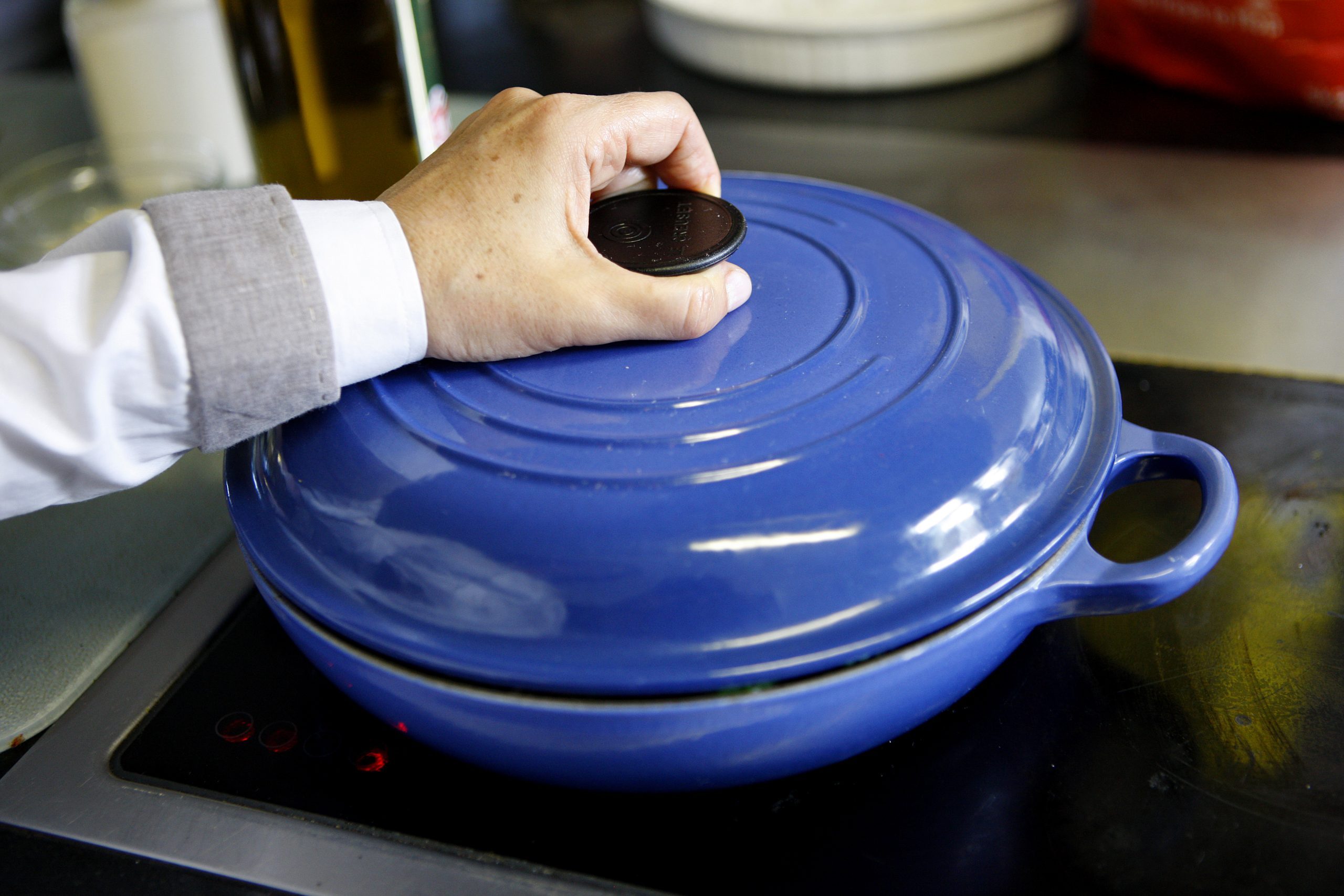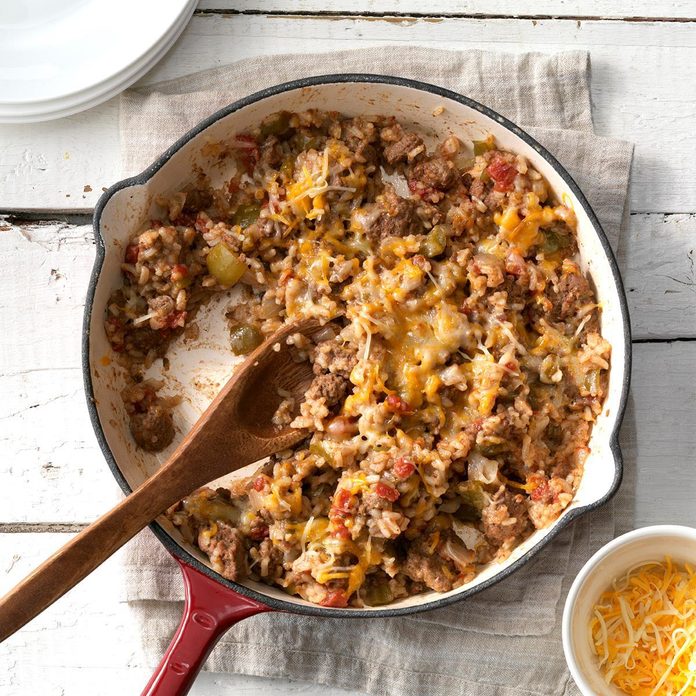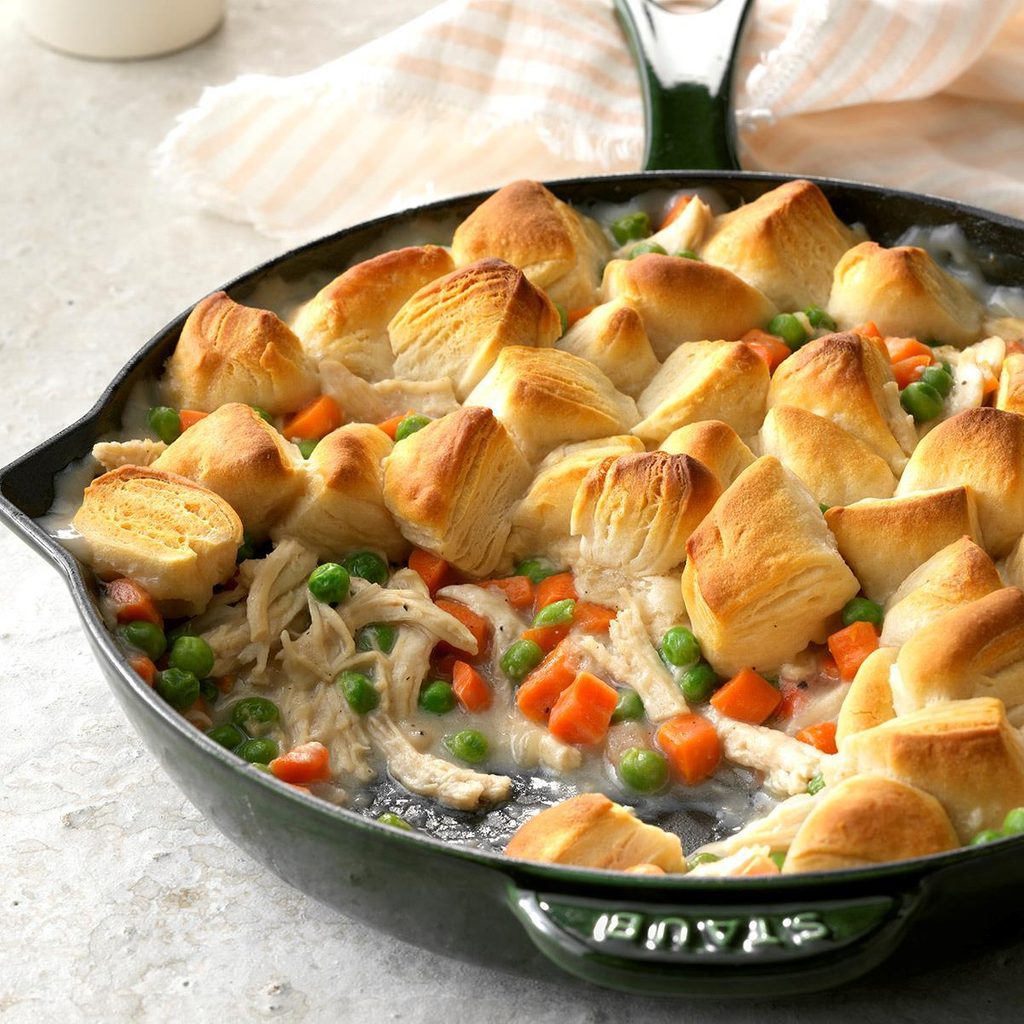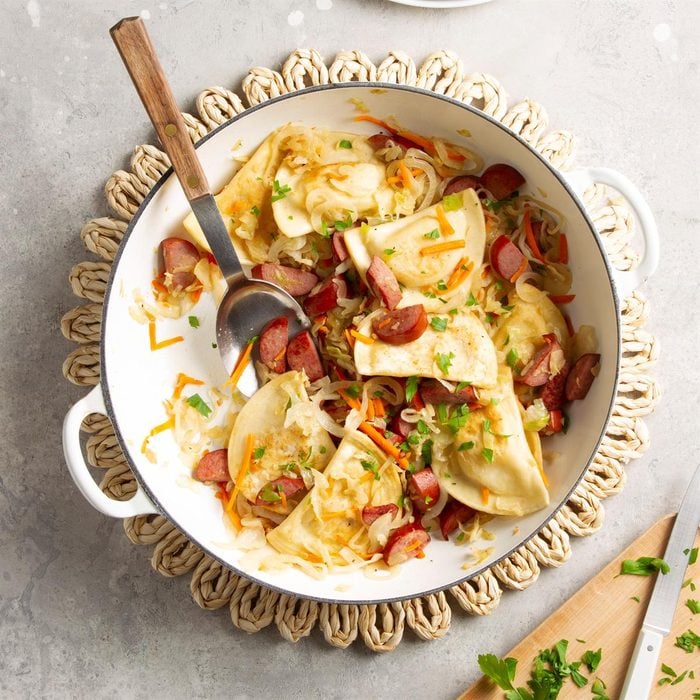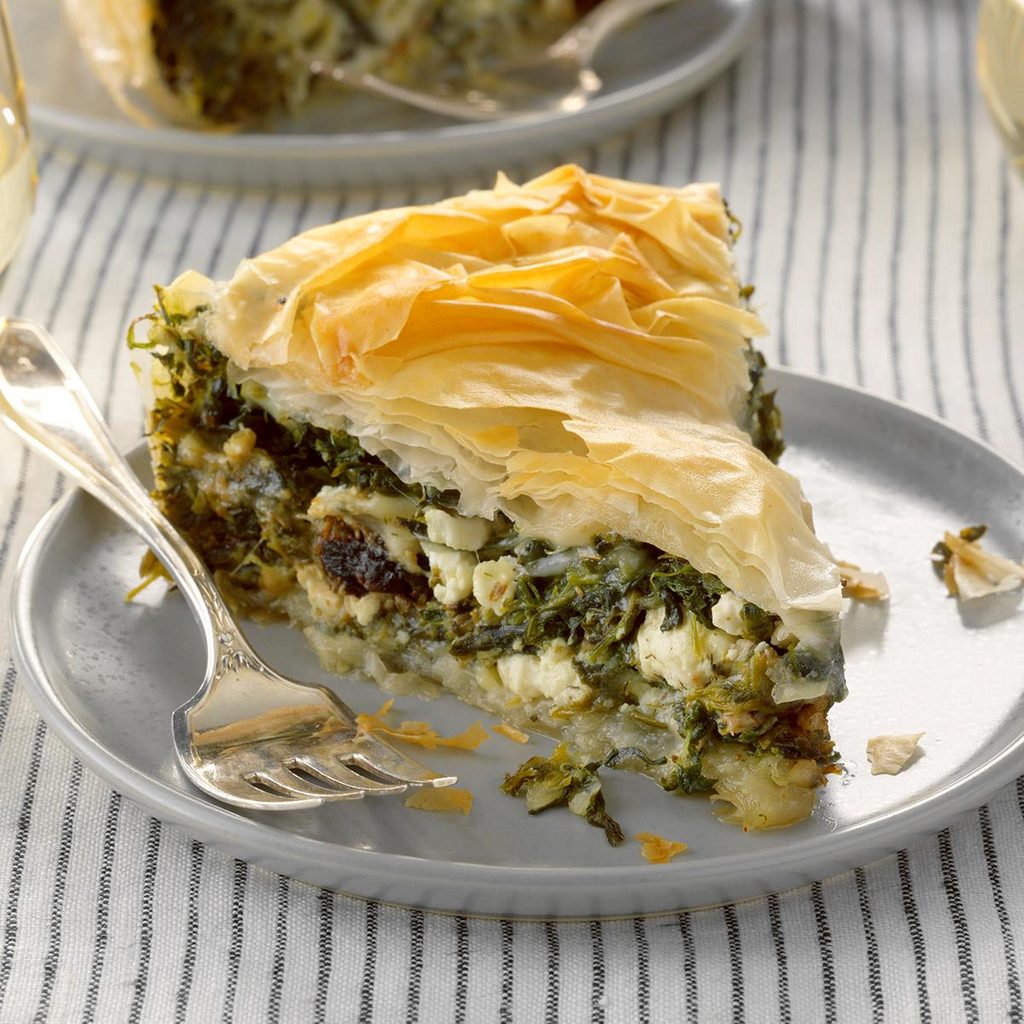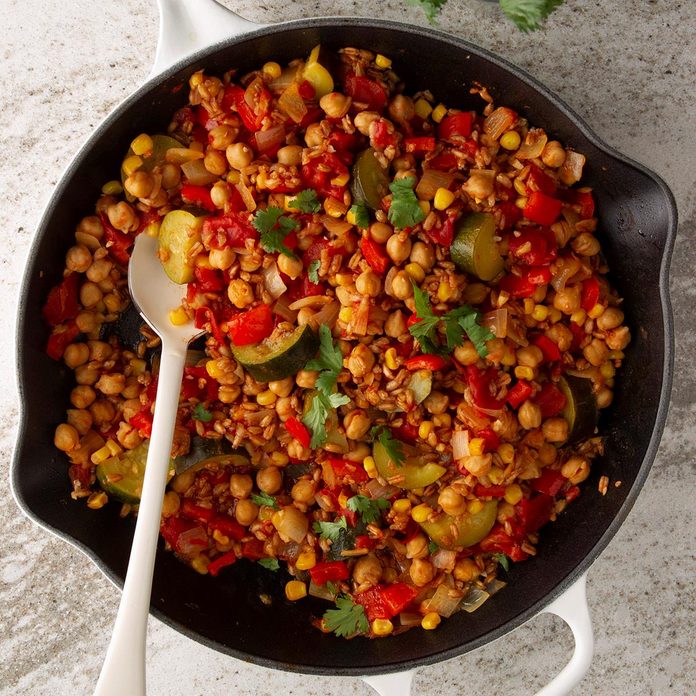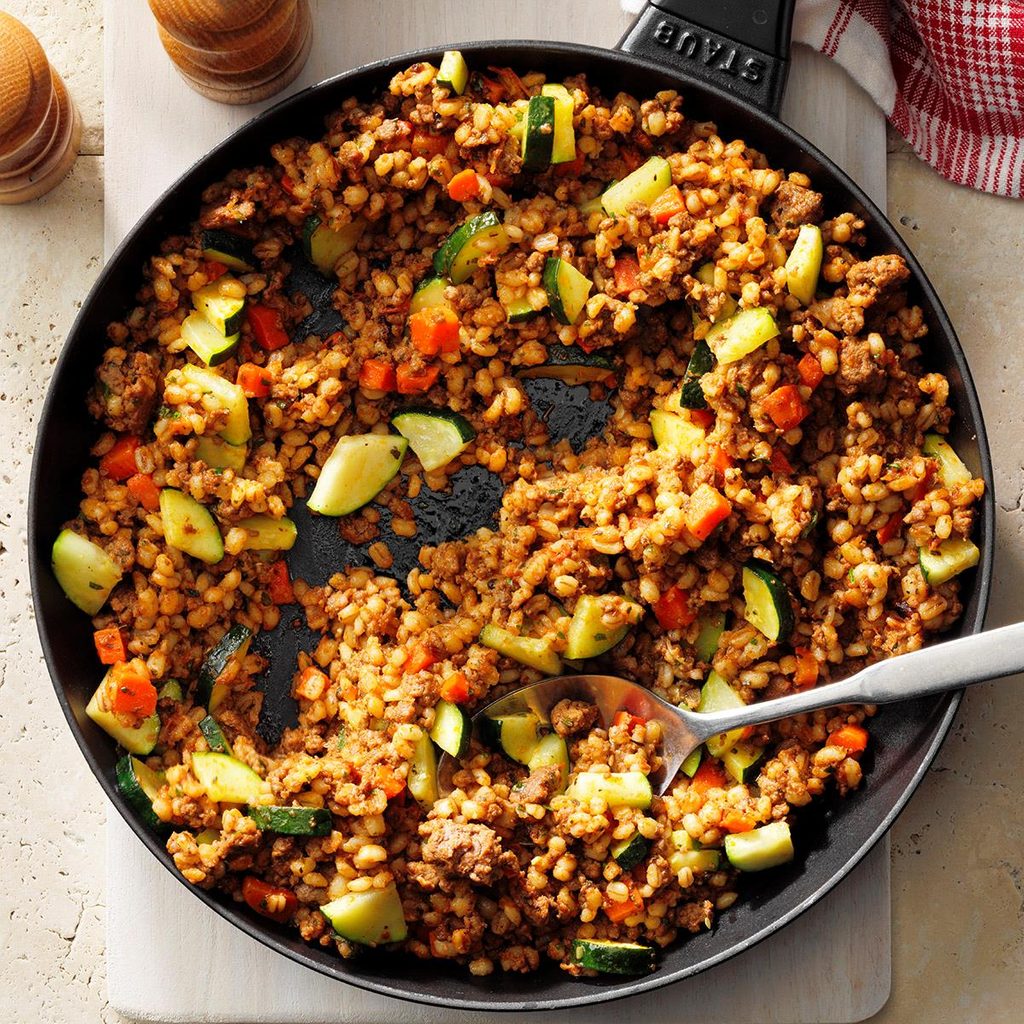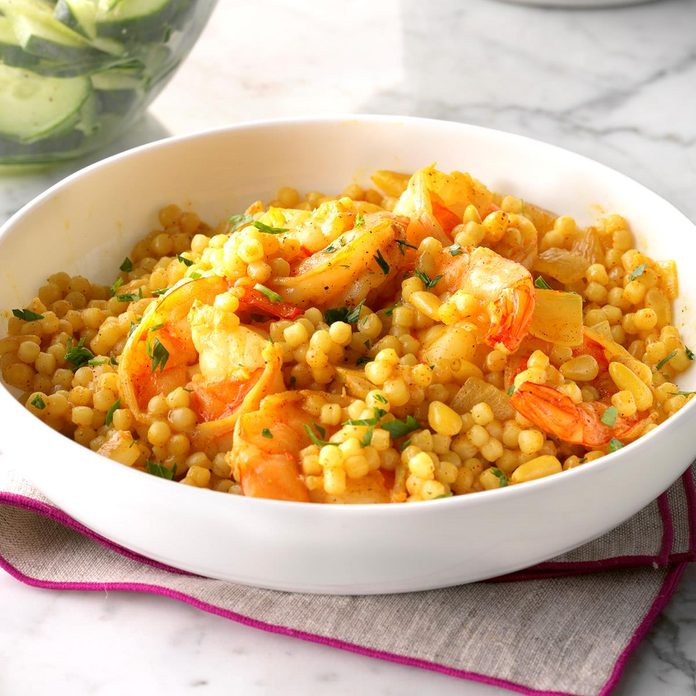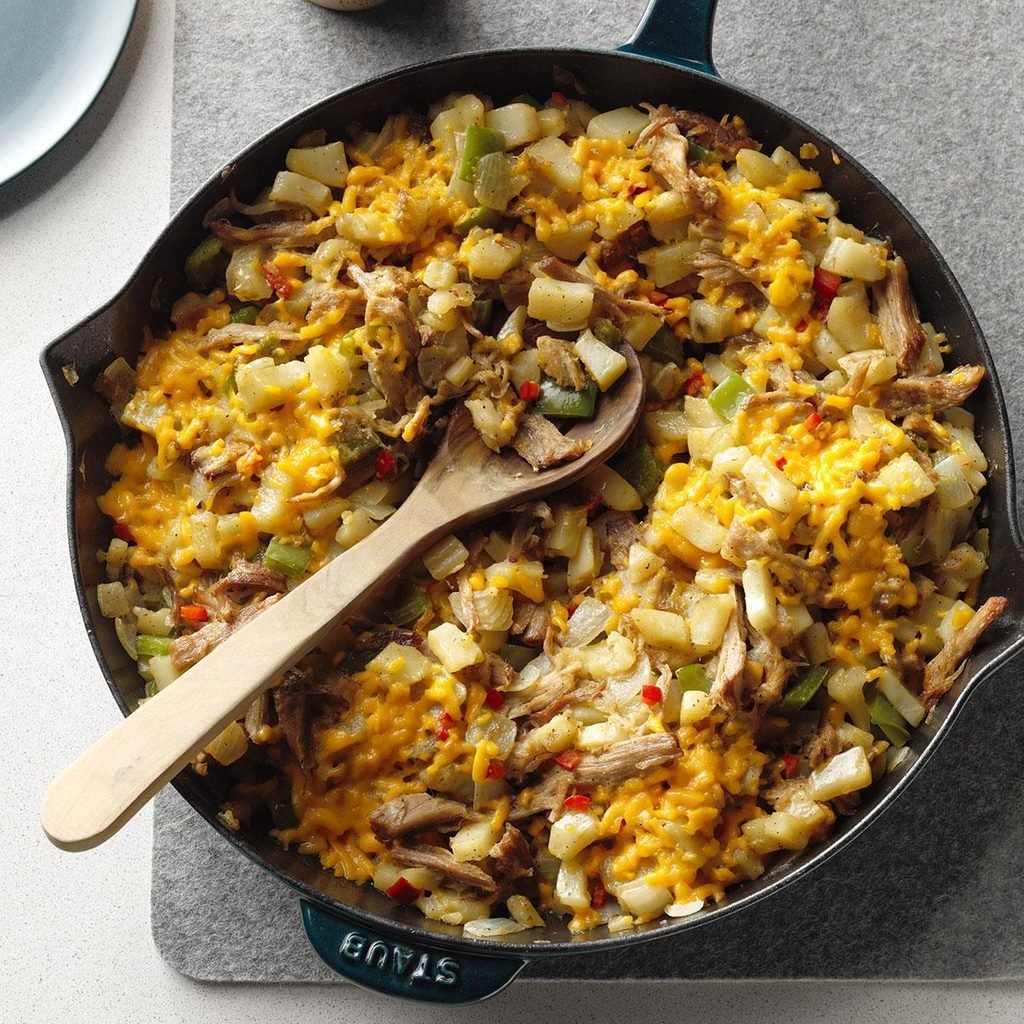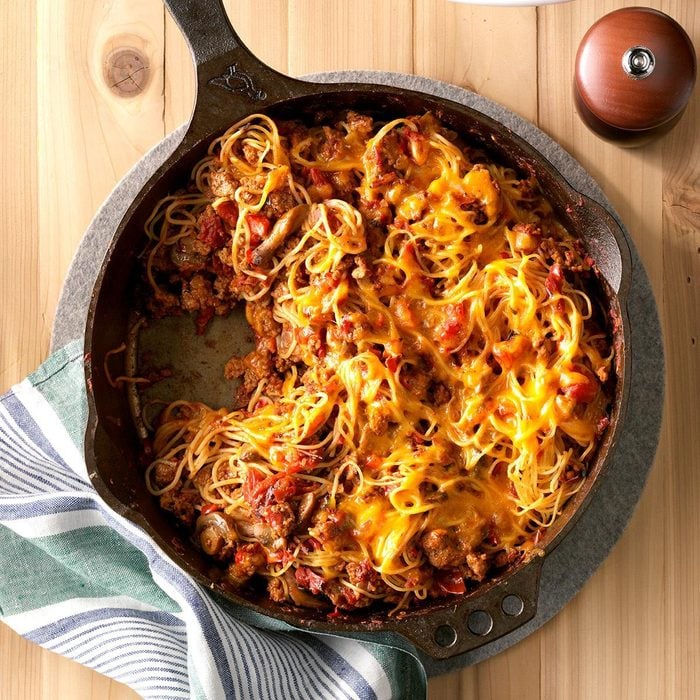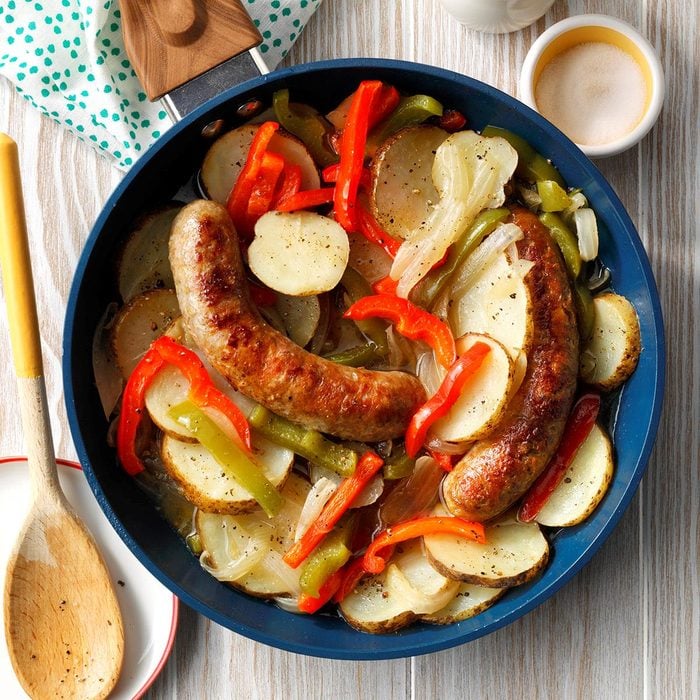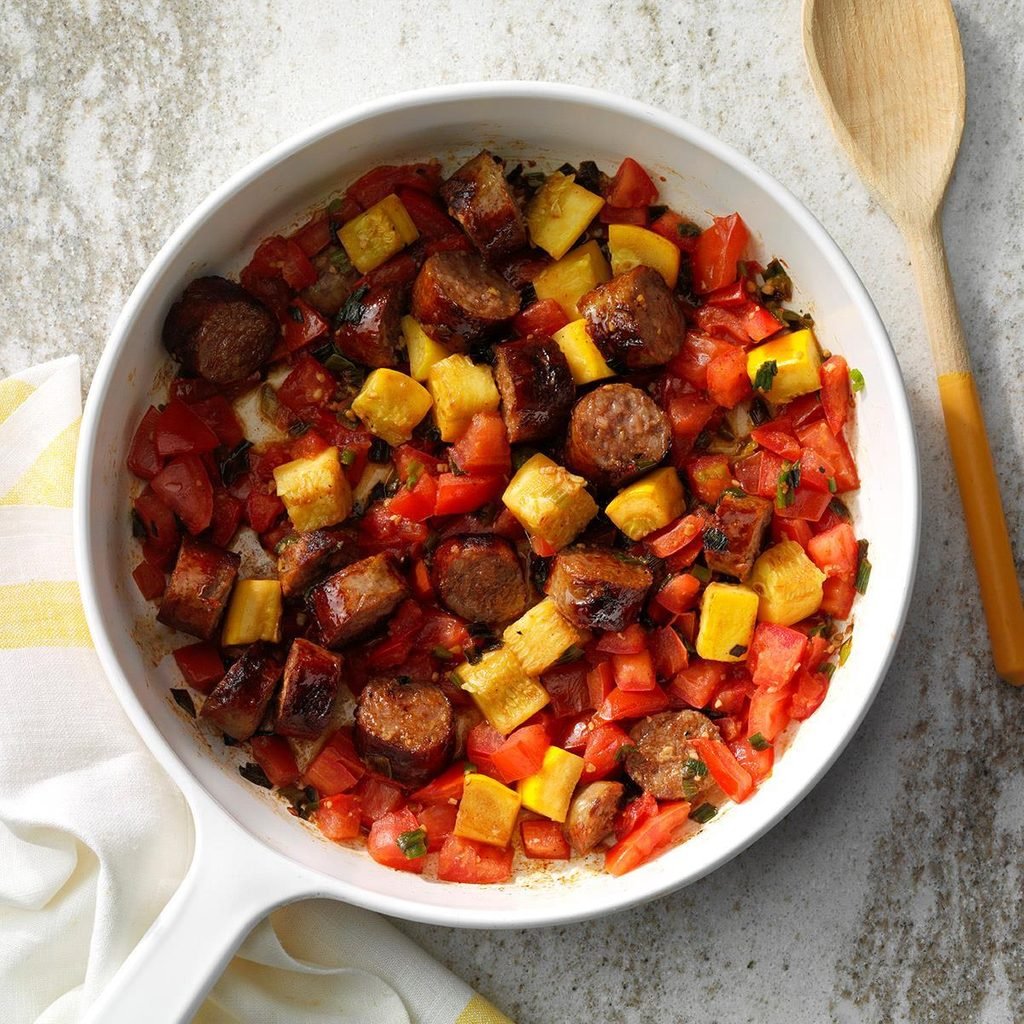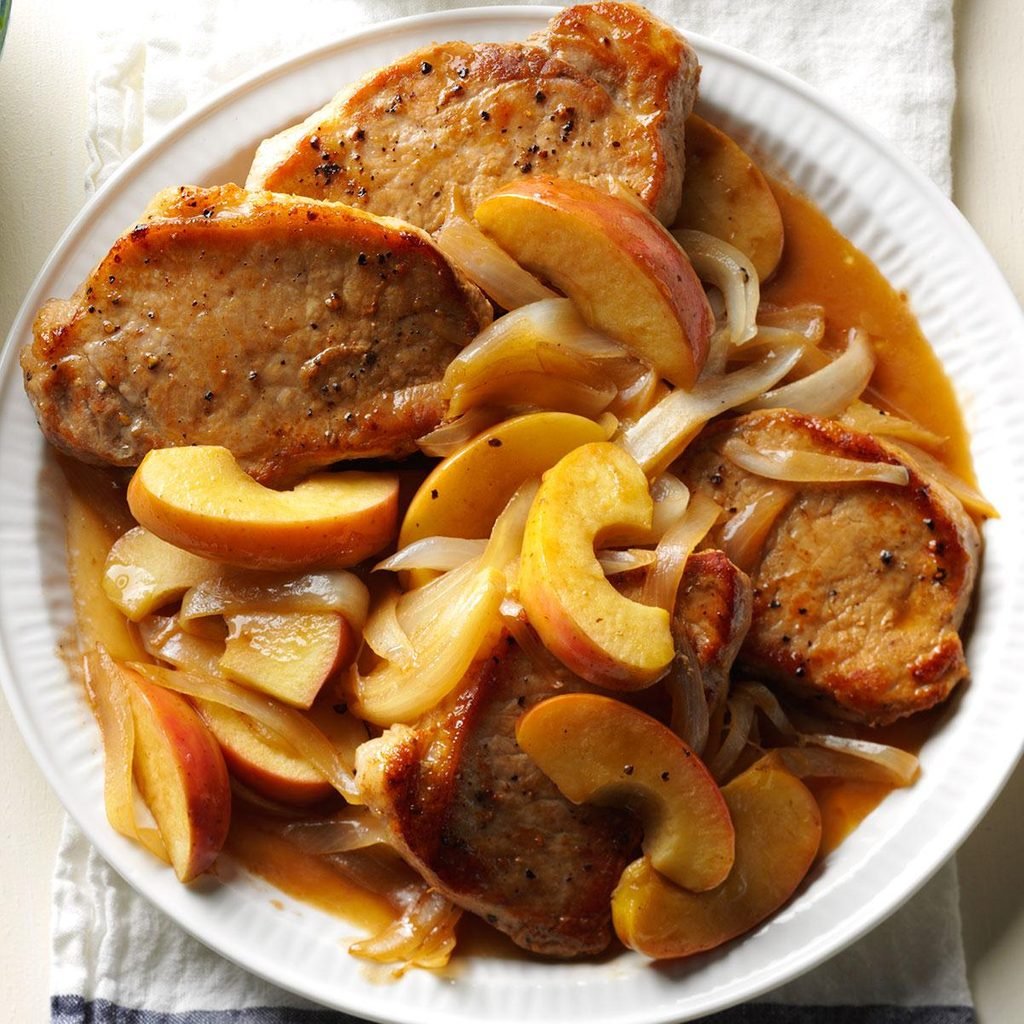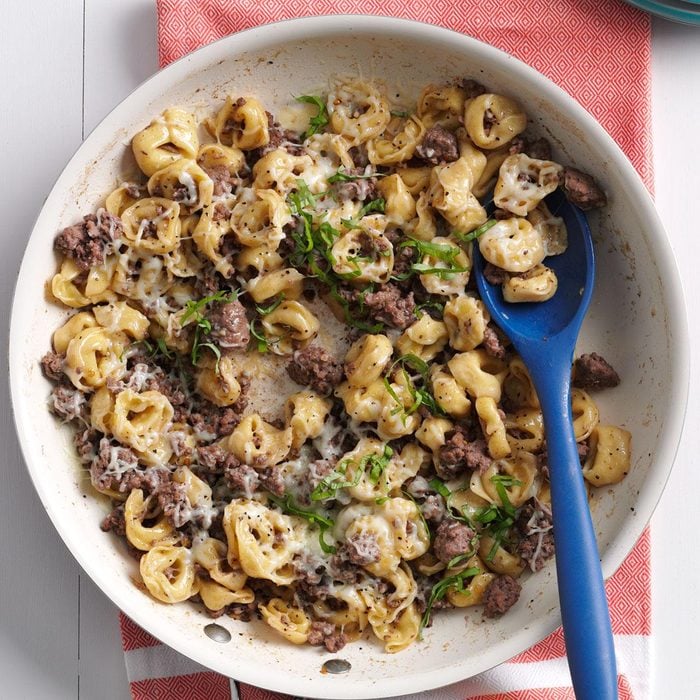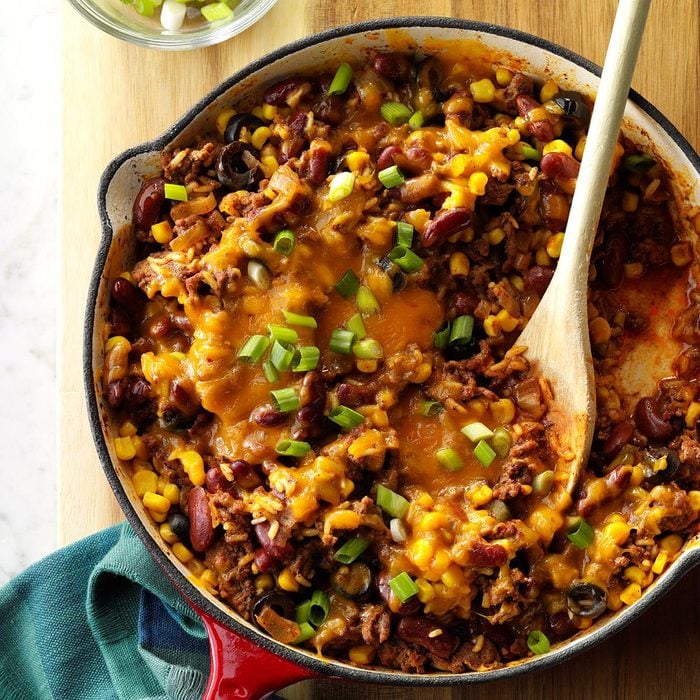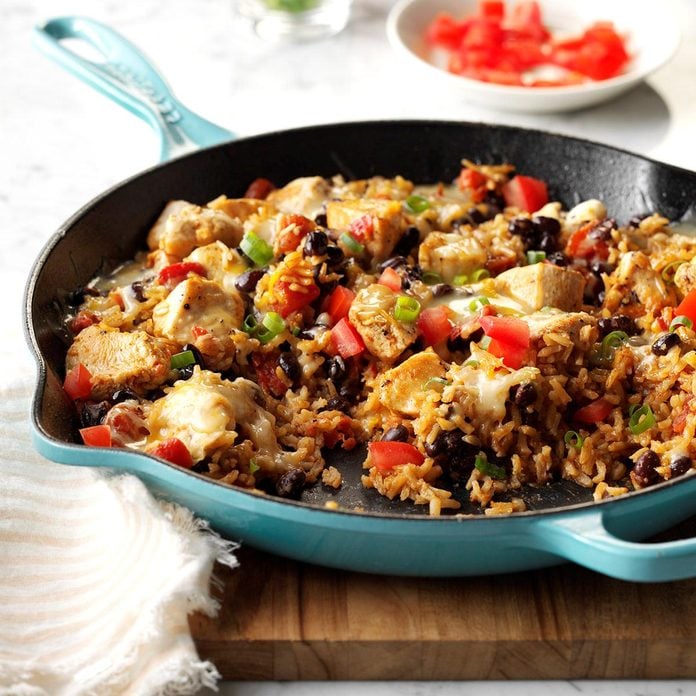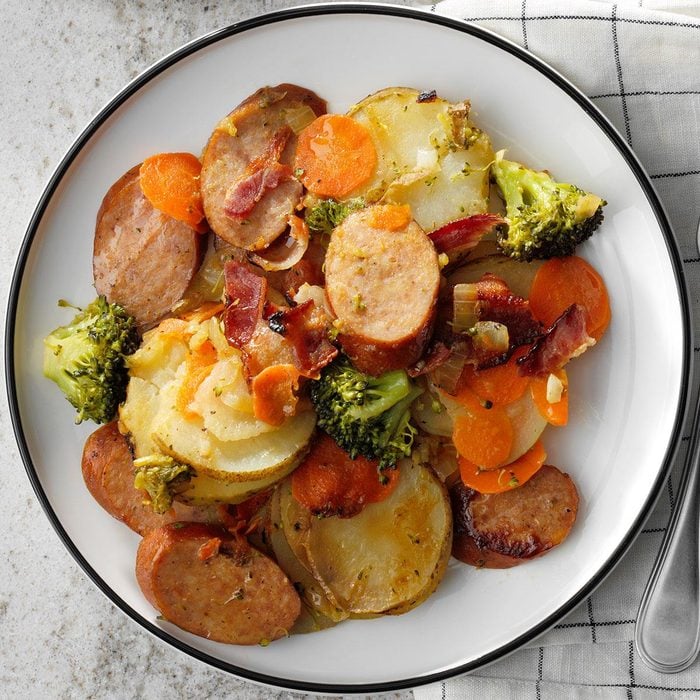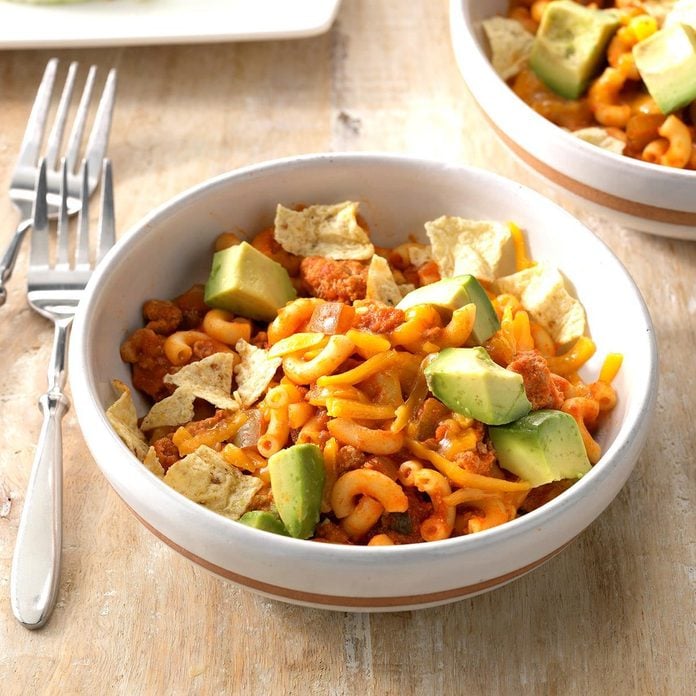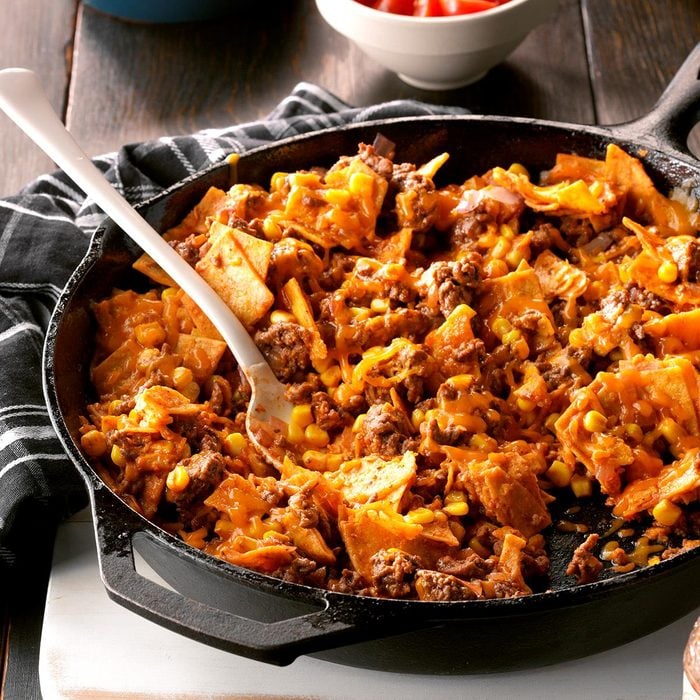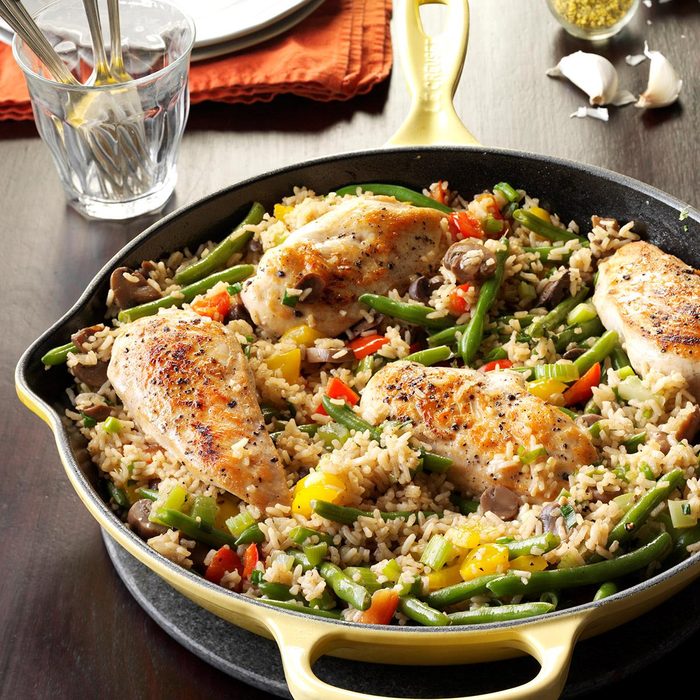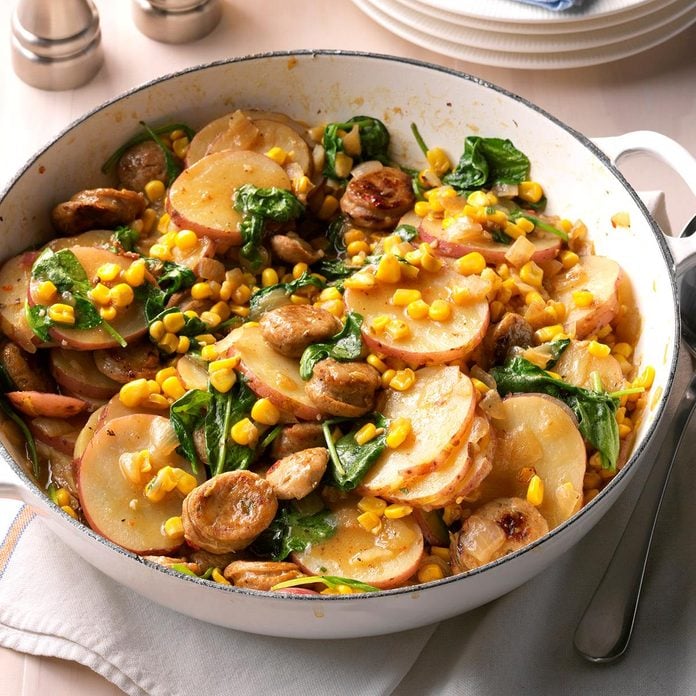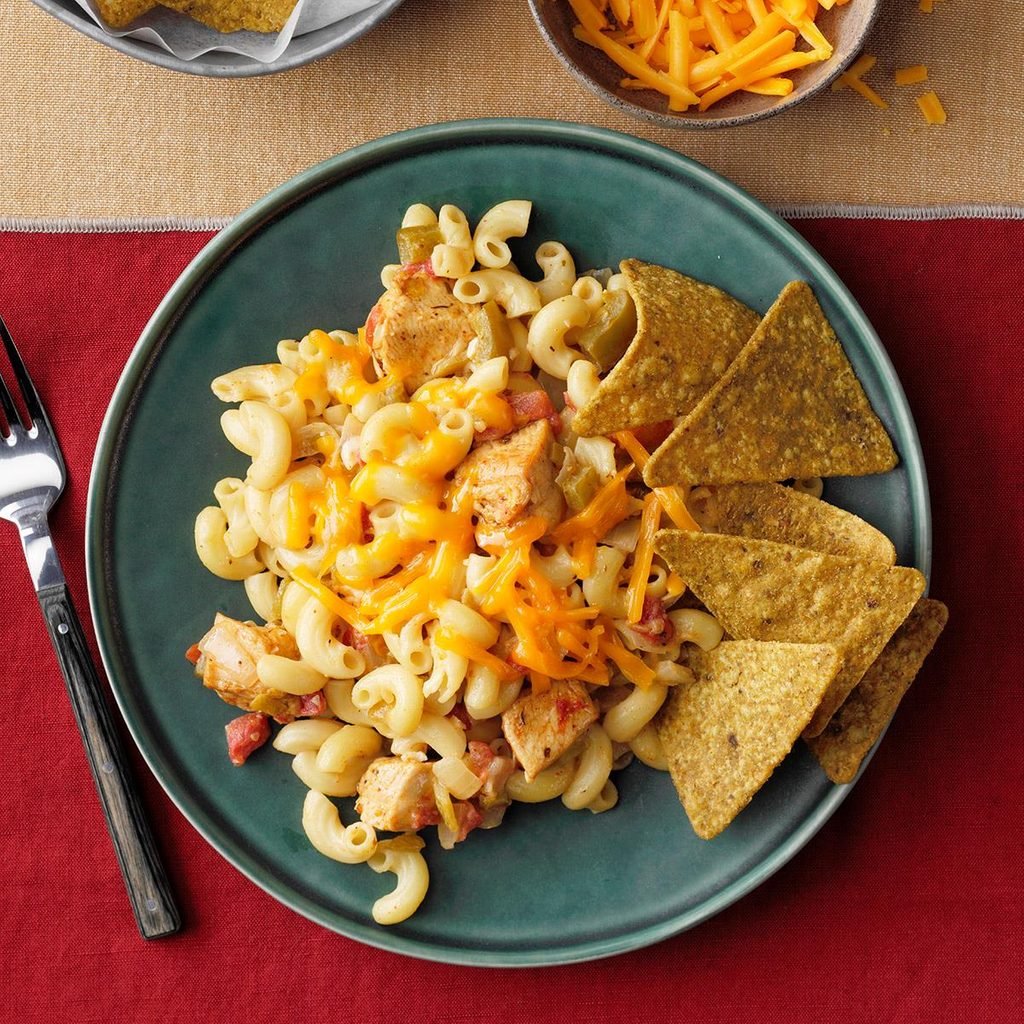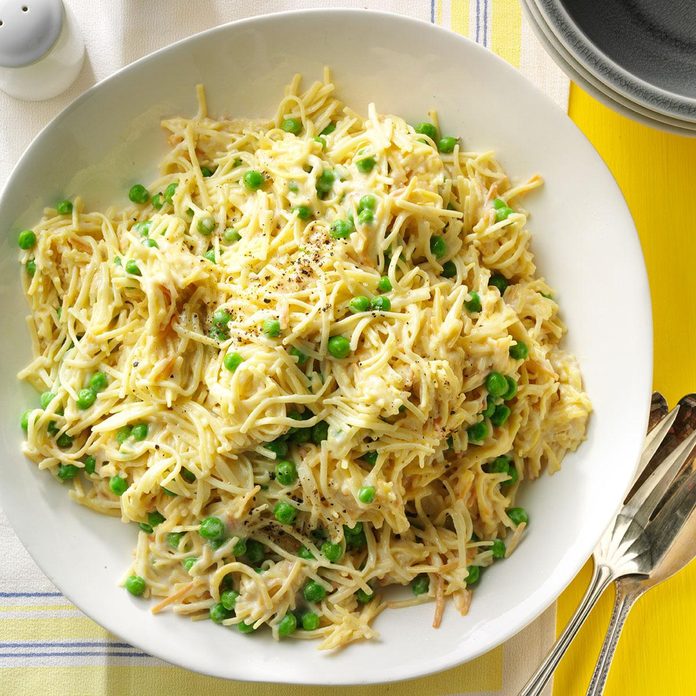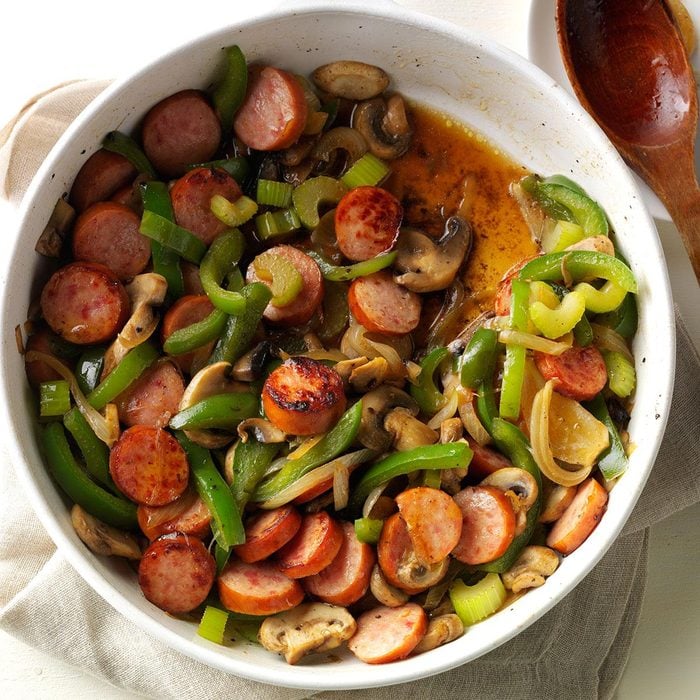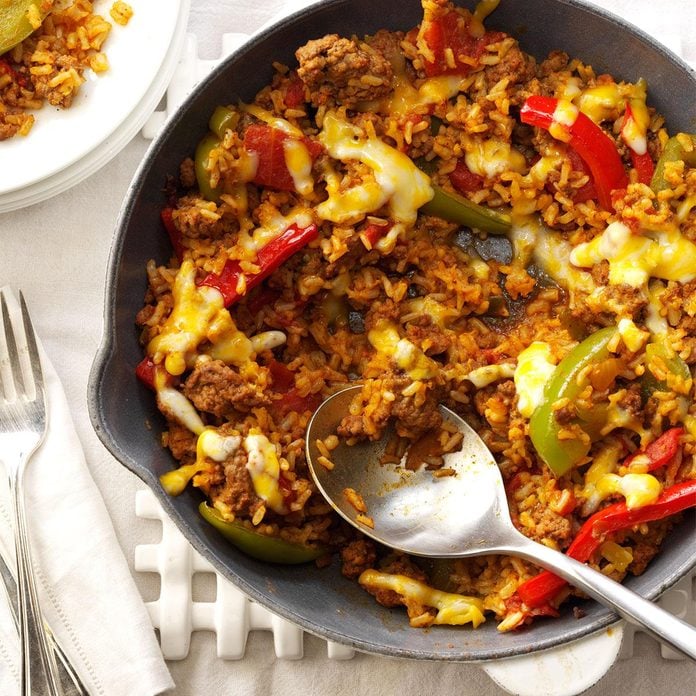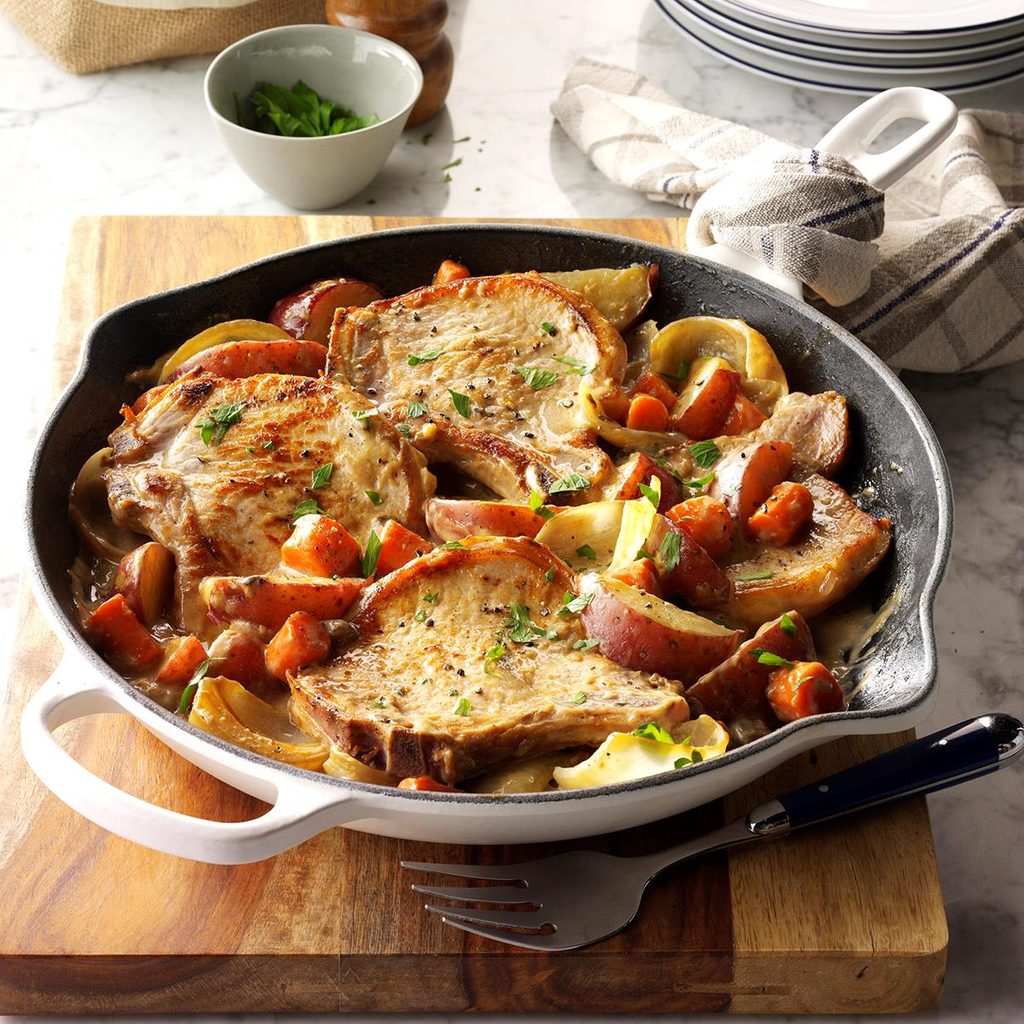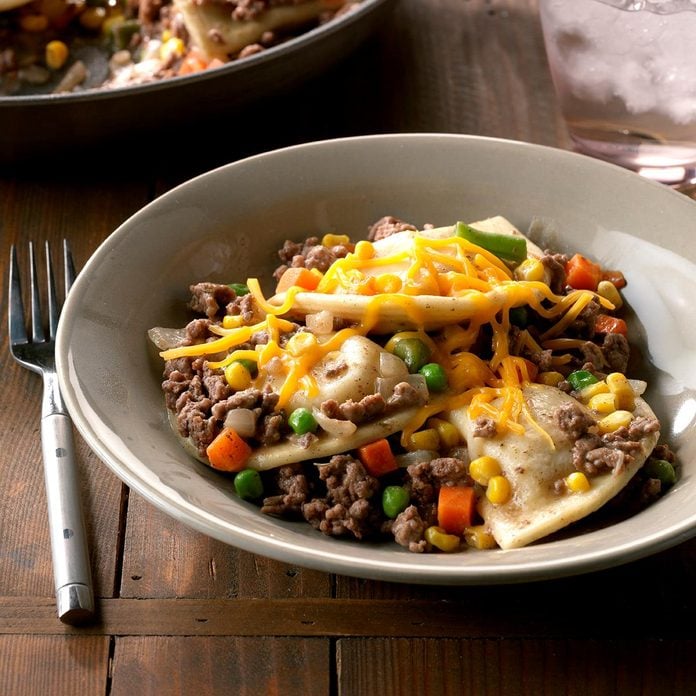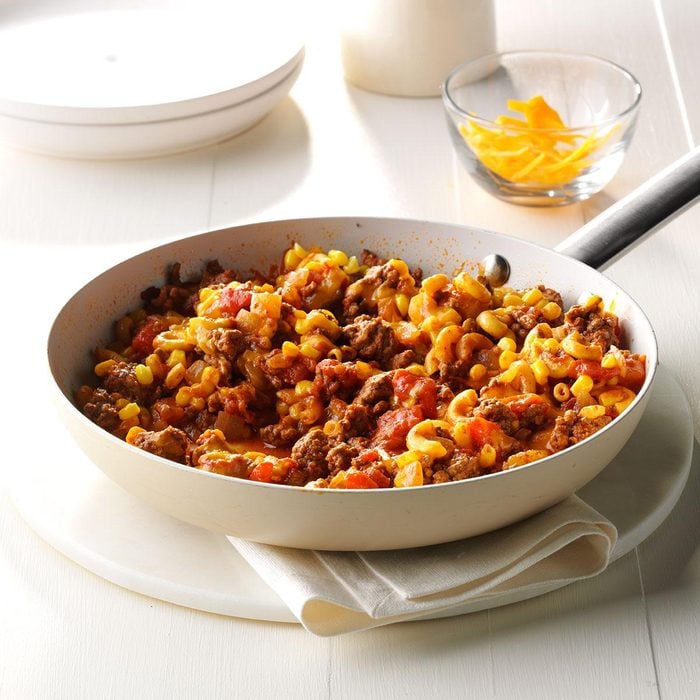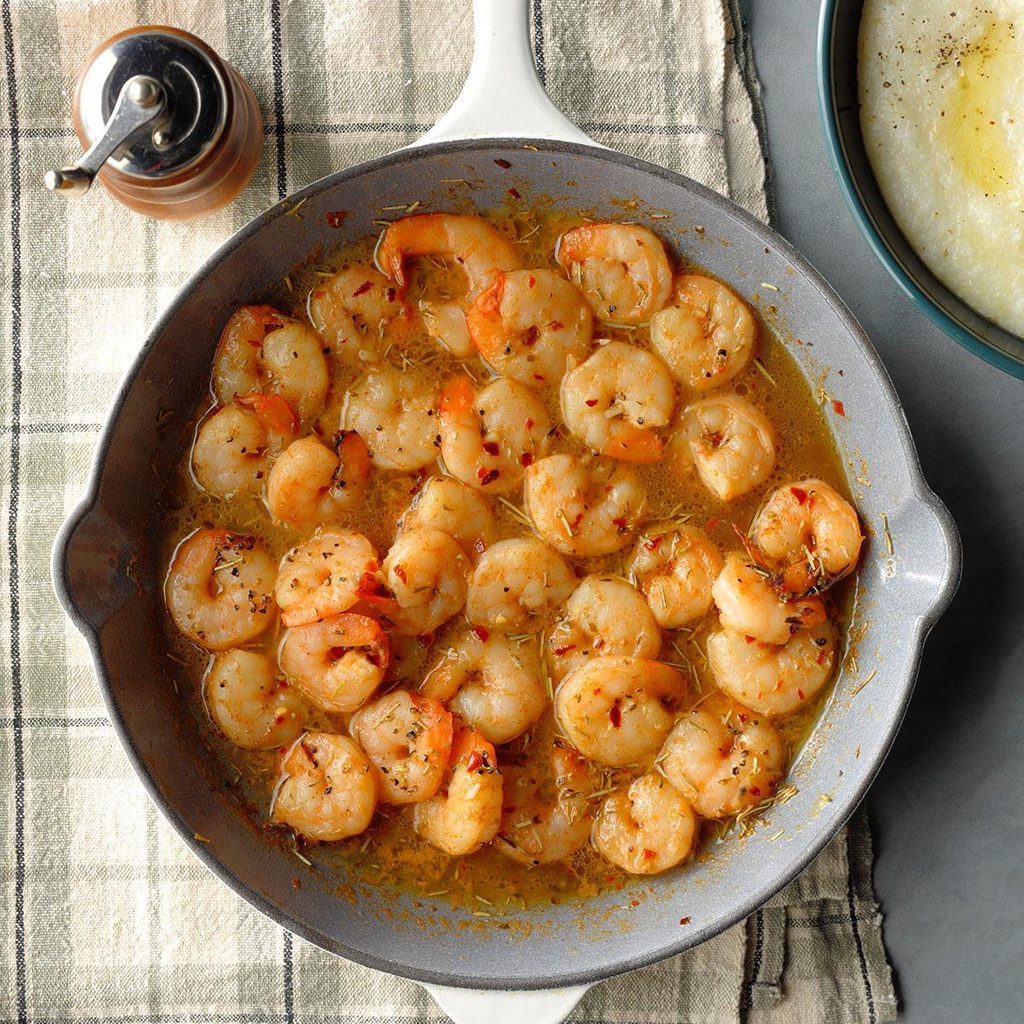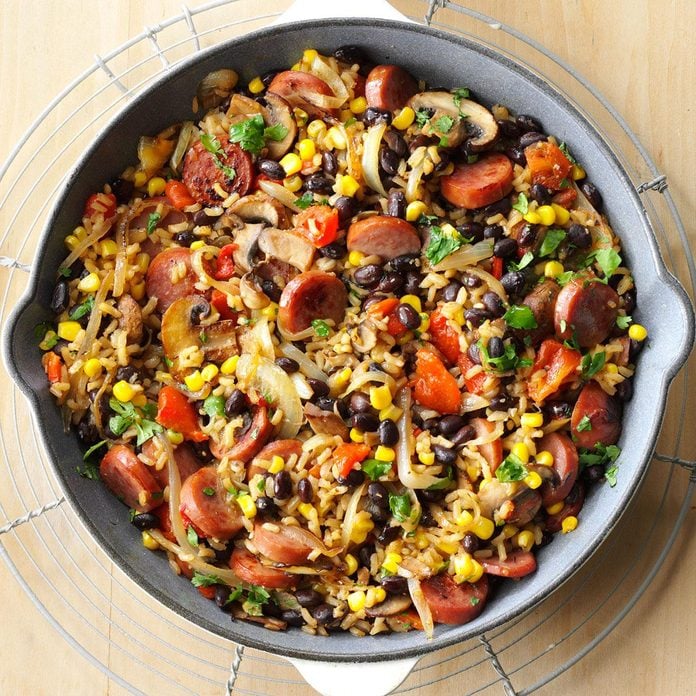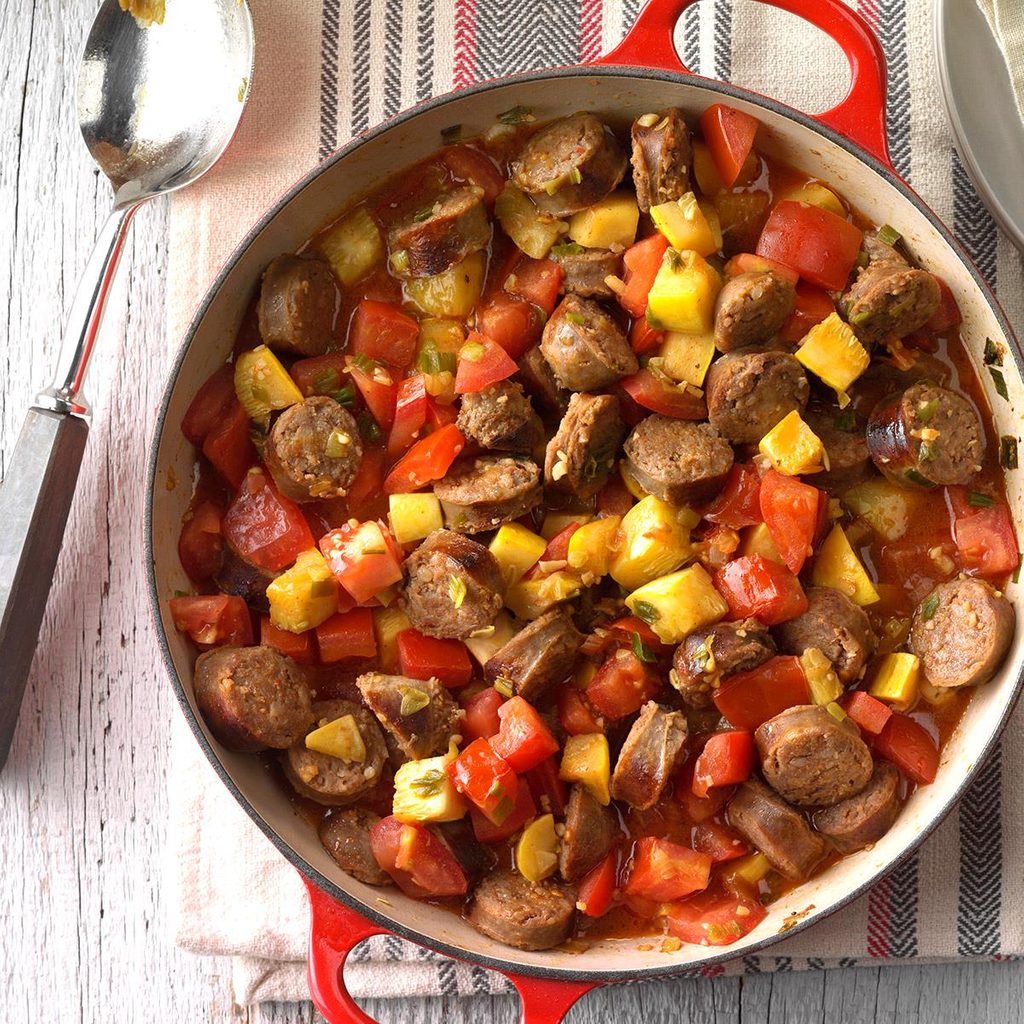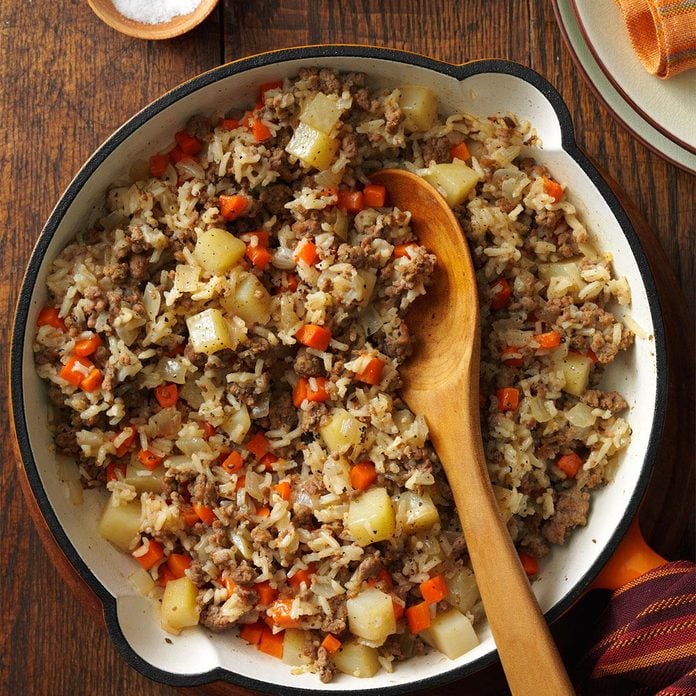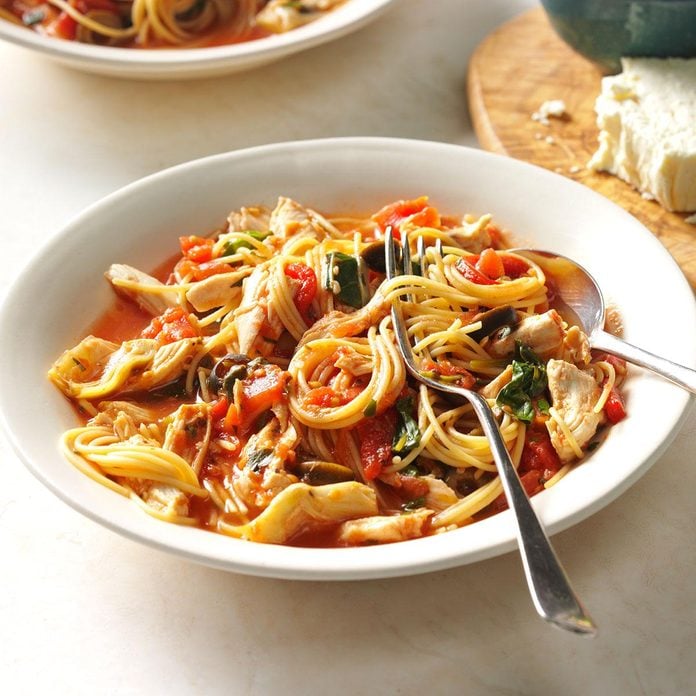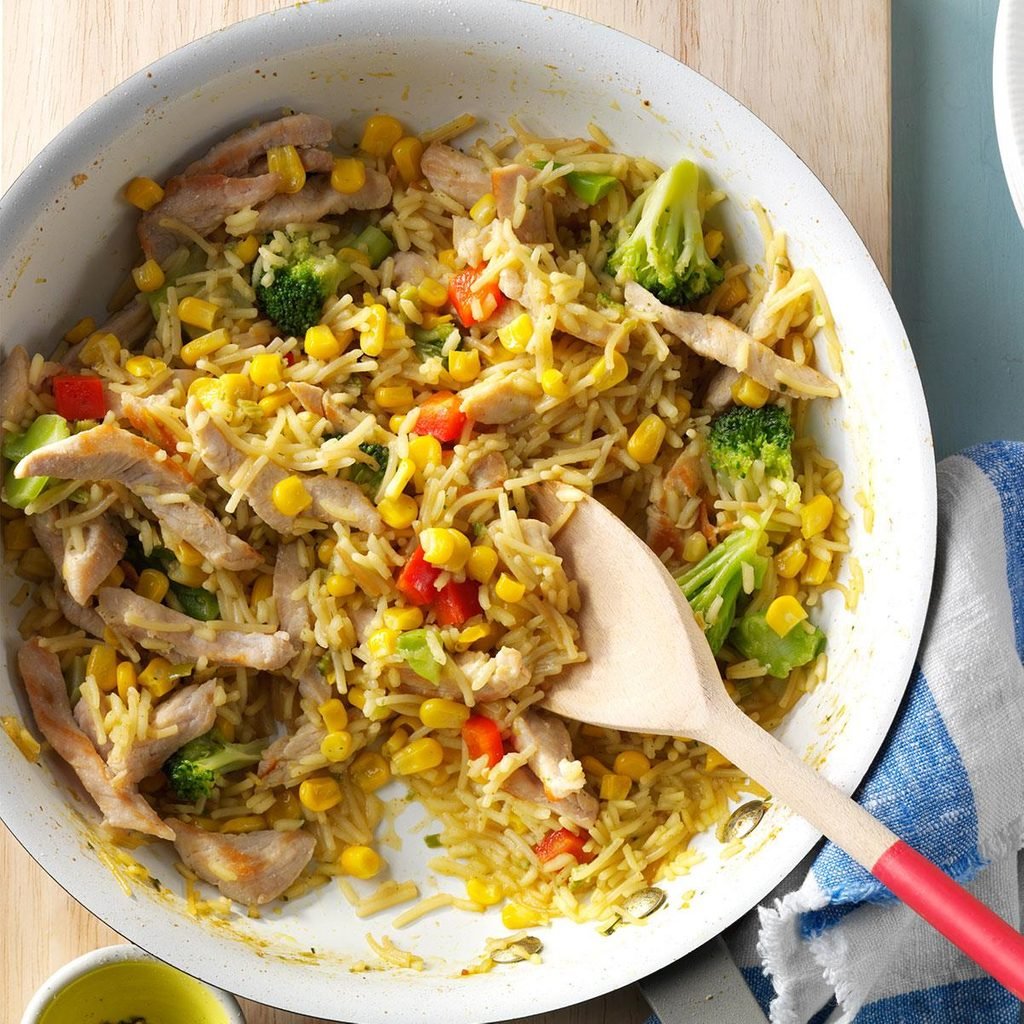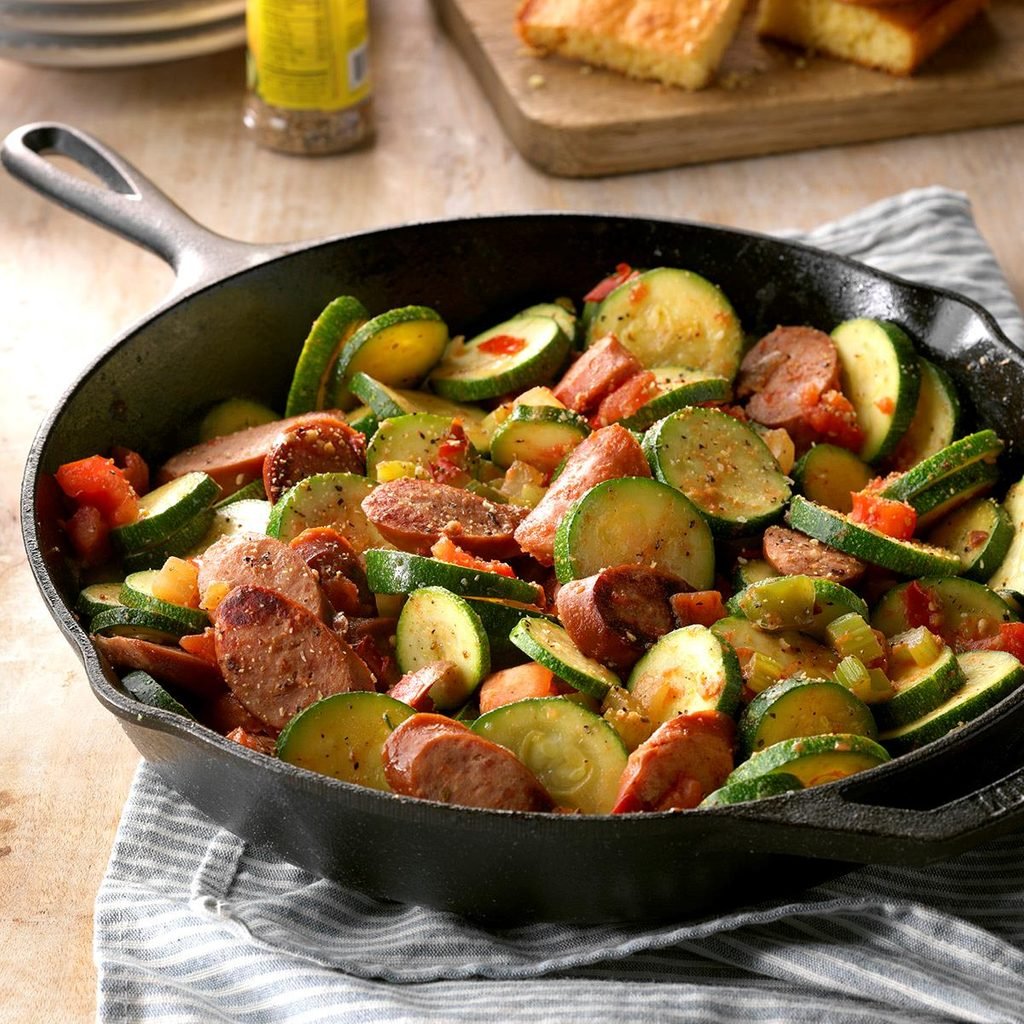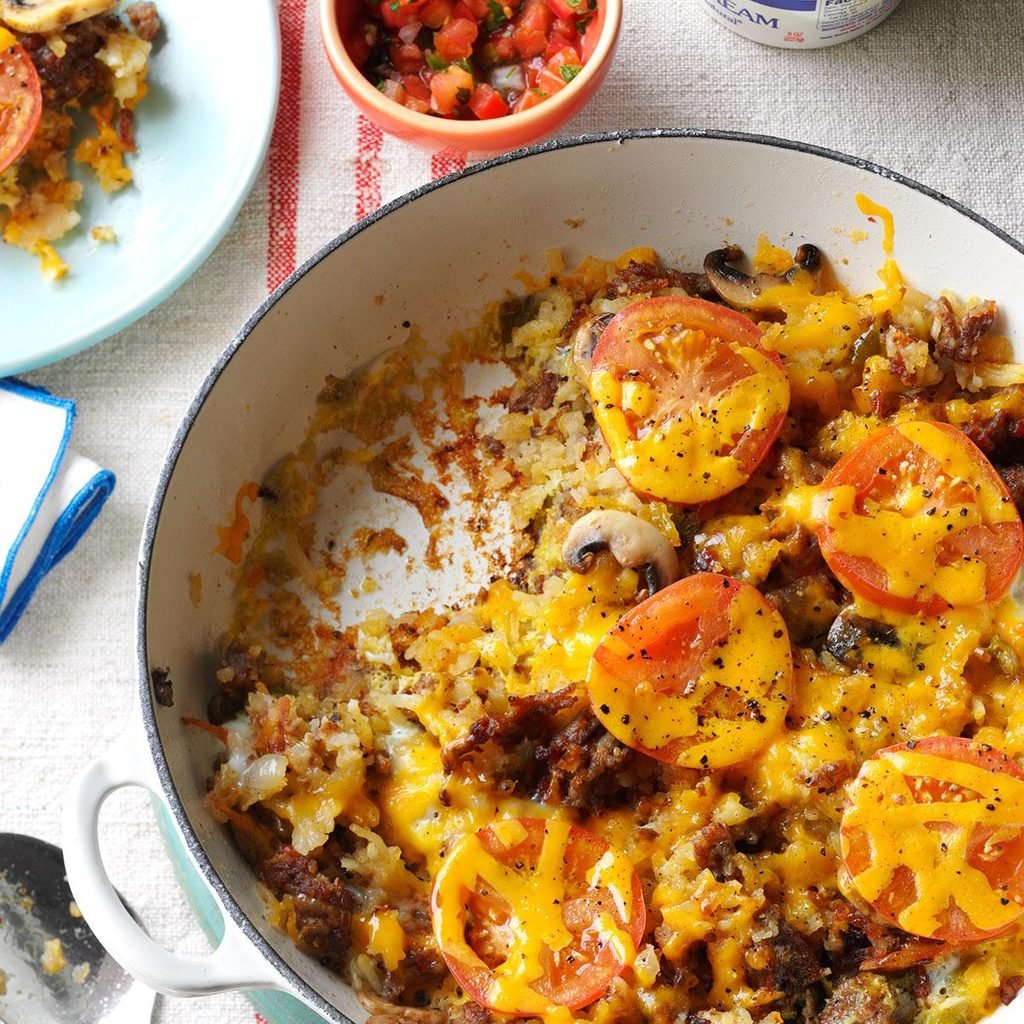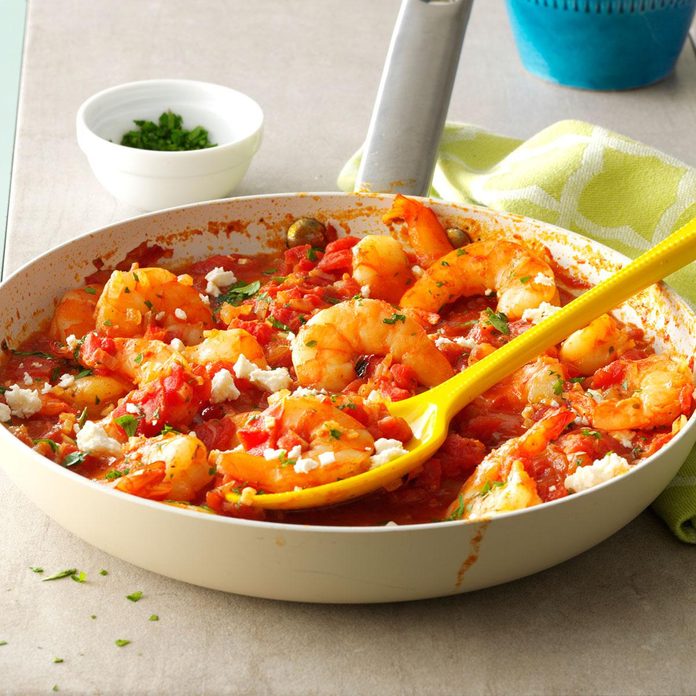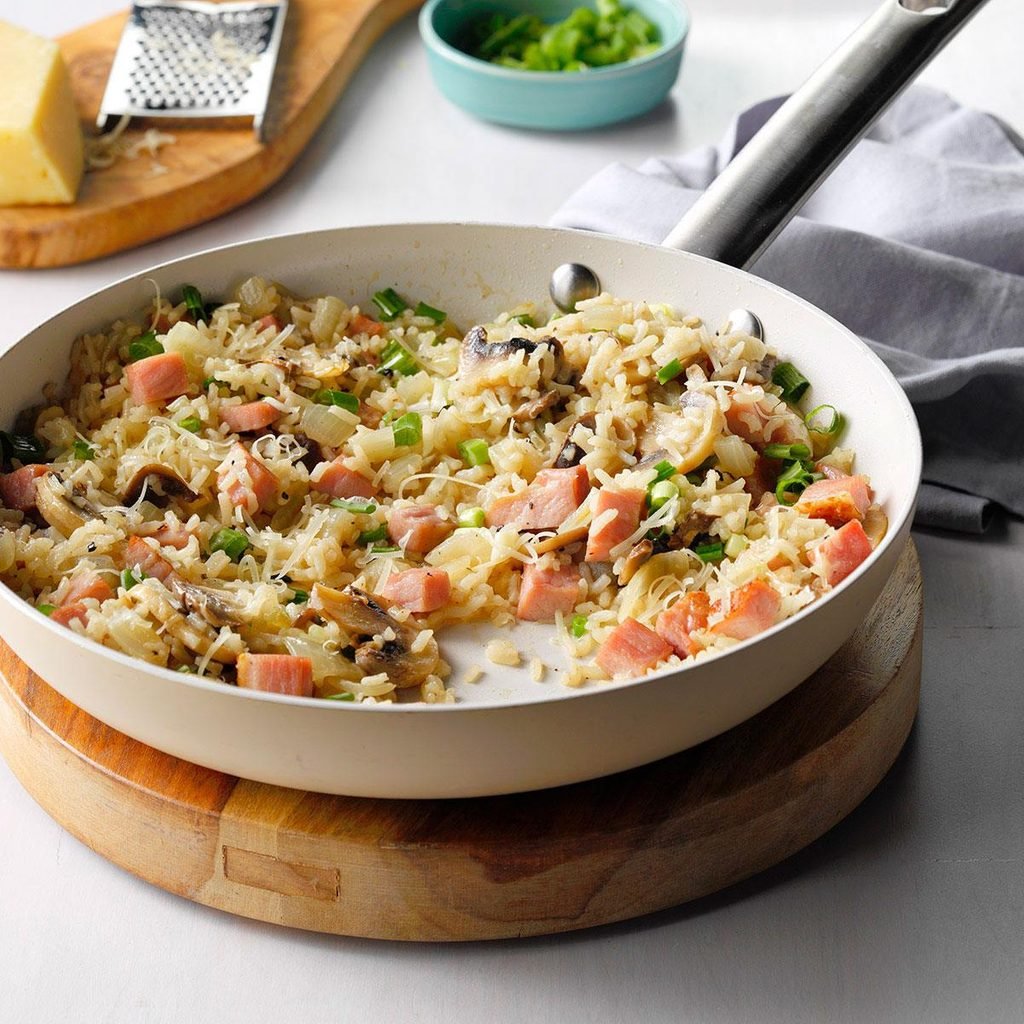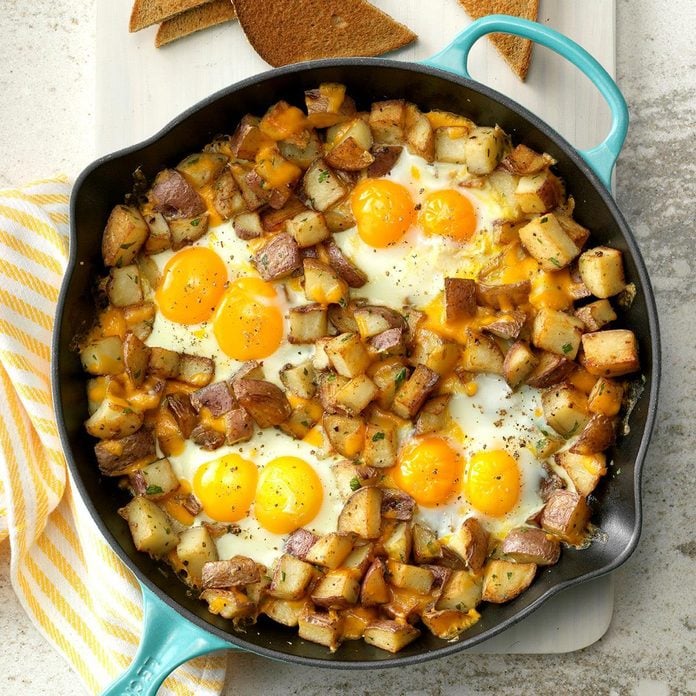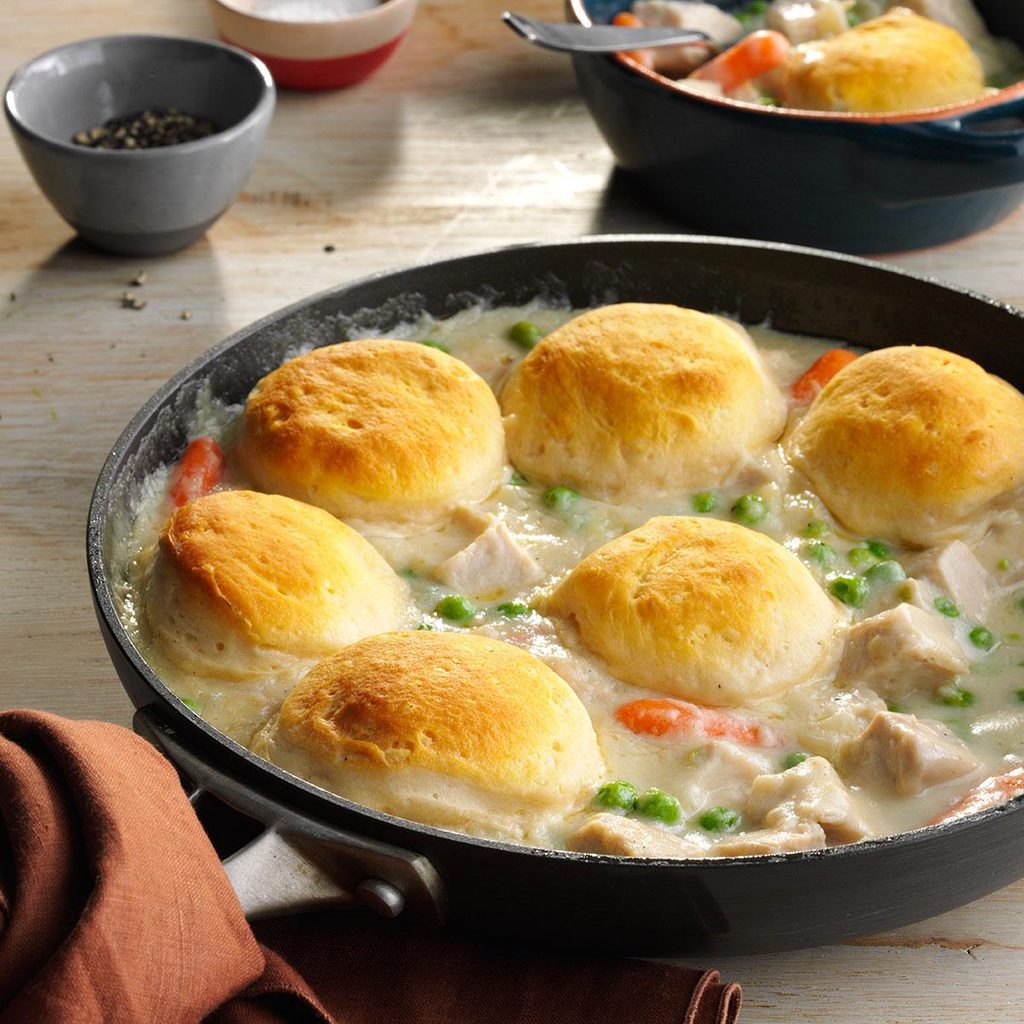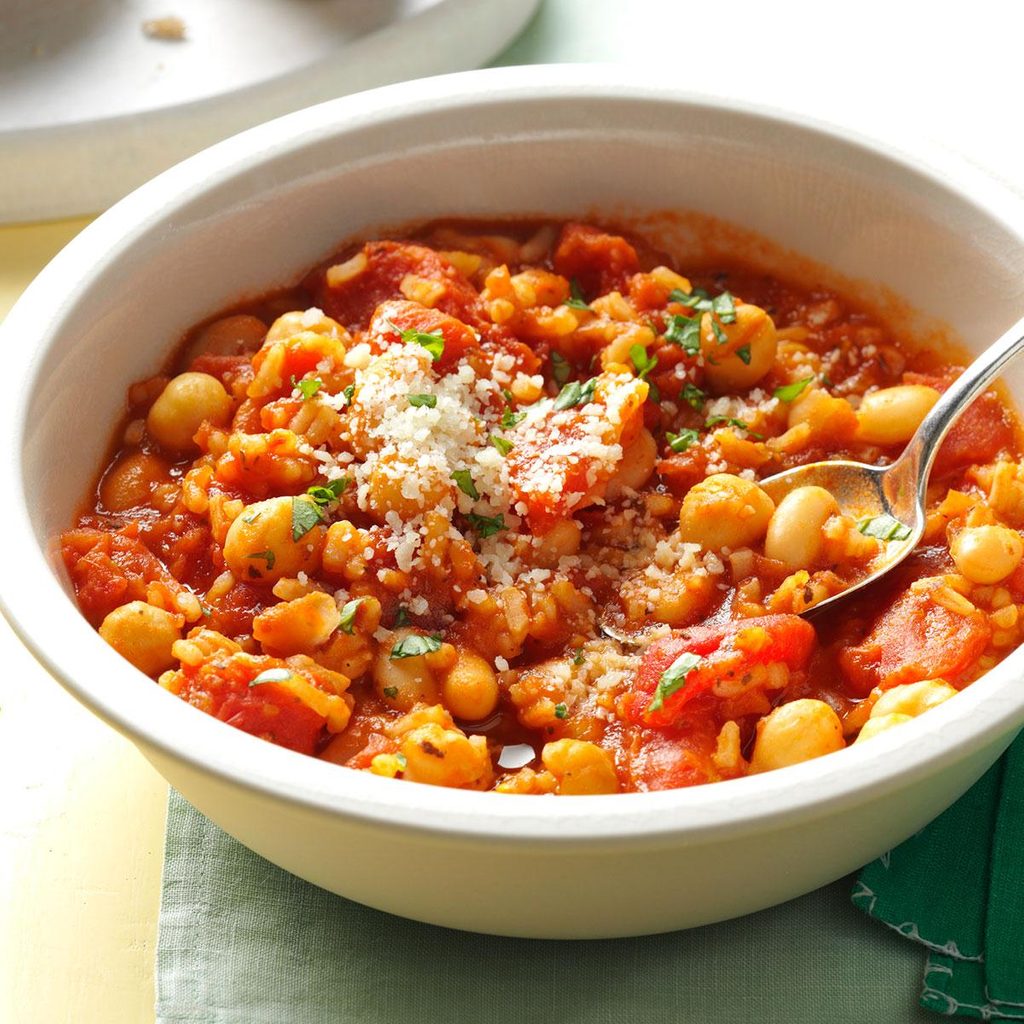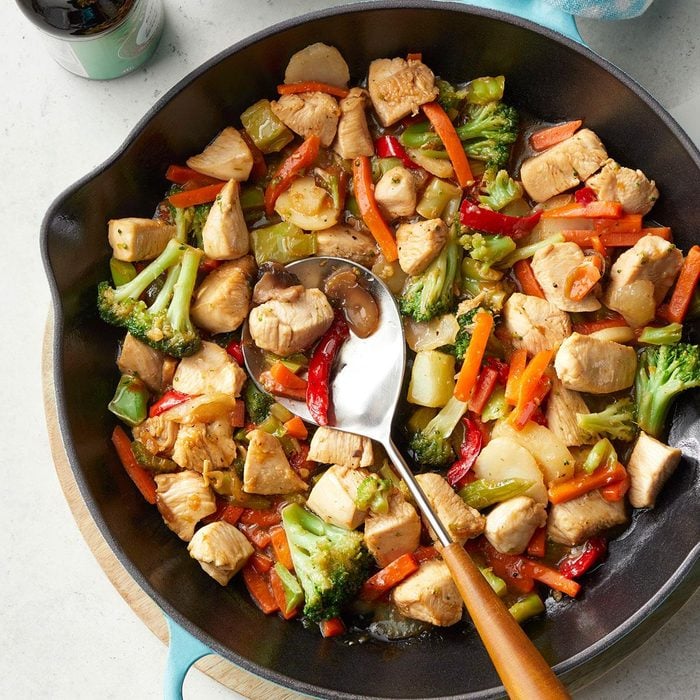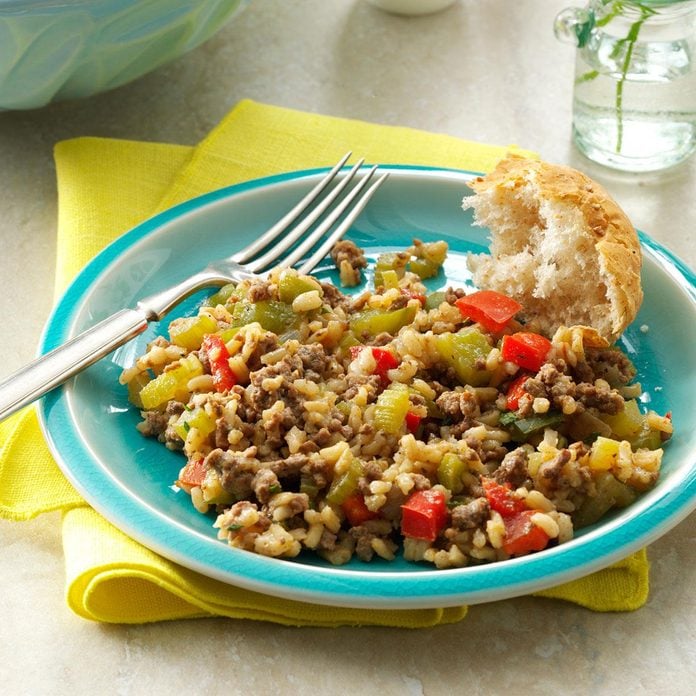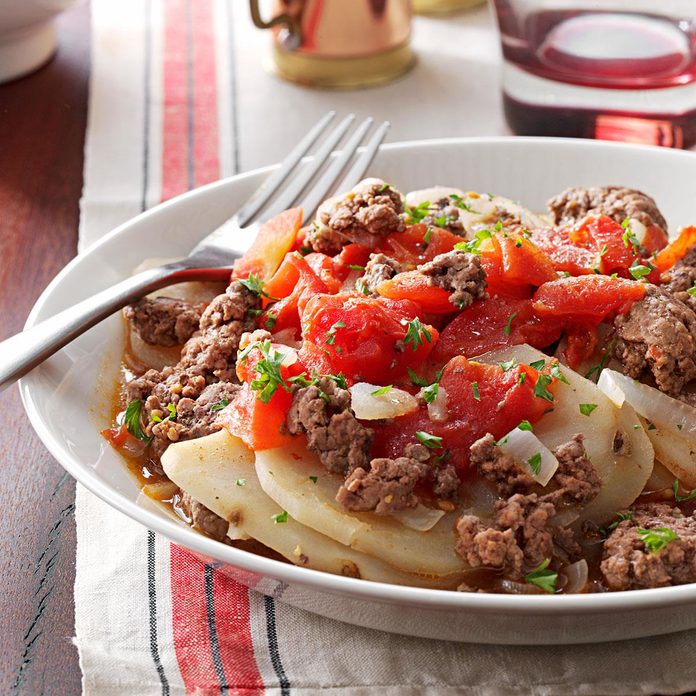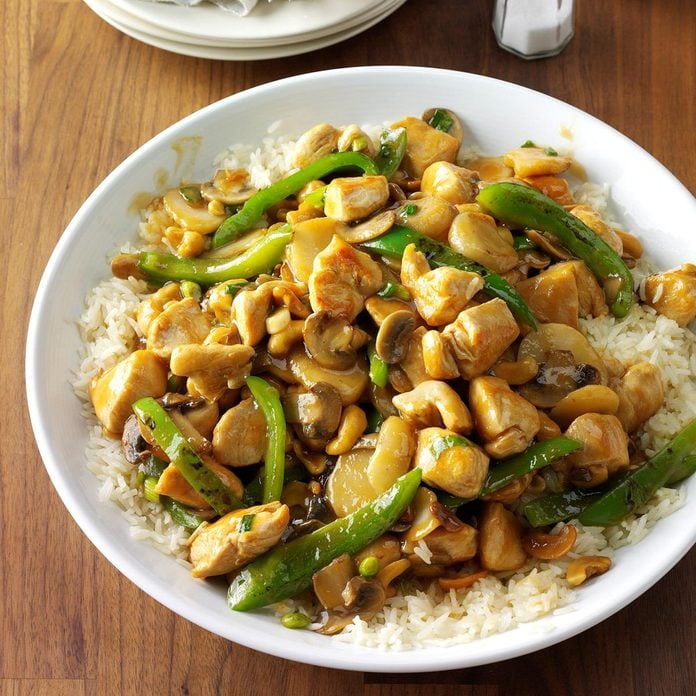Before you start cooking, it’s important to have the right equipment—and one kitchen essential is a good frying pan. The next step, of course, is to invest in the right cooking oils! Picking the best oil to fry food depends on the smoke point as well as the pan you’re using. But if you have particularly expensive pans, olive oil may be off the table.
Recently, cookware company Le Creuset warned that using olive oil to cook may damage your expensive pans.
Why You Shouldn’t Use Olive Oil
Le Creuset has recently spoken about the possible effects of using olive oil. When used to the point of smoking or burning, olive oil can leave an unsightly brown residue on your pan. This brown residue creates a barrier between the pan and the food and can cause the taste to change.
Italian kitchenware company Smeg also agreed with the sentiment. They recommend that customers not use olive oil when they cook as smoking could ruin the overall quality of the cookware.
Here’s everything you need to know about cooking oils.
Does This Affect All My Pans?
It depends. If you use an oil past its smoke point, you could strip a nonstick pan of its Teflon coating. Doing so will essentially make the nonstick aspect obsolete—not ideal. Olive oil can also damage ceramic pots and pans by creating a carbonized layer over the bottom. If you cook with olive oil, make sure it’s over low to medium heat.
Here’s what to cook in a nonstick pan—and what to avoid.
What Oil Should I Use Instead?
Avocado oil and sunflower oil are two very good alternatives. Sunflower oil has a smoke point of 45o°F. Avocado oil has a smoke point of about 520°, over 100° higher than olive oil at 405°. It’s also one of the healthiest oils to cook with and can be great for deep-frying. Refined coconut oil only has a smoke point of up to 400°; however, it’s highly resistant to oxidation at high temps.
Easy One-Skillet Meals for Busy Nights
Skillet Shepherd’s Pie
This is the best shepherd's pie recipe I've ever tasted. It's very
quick to make, and I usually have most—if not all—of the ingredients already on hand. It's one of my favorite
one-skillet meals! —Tirzah Sandt, San Diego, California
Go to Recipe
Southwestern Beef and Rice SkilletI like to serve this kicked-up skillet dish with warm flour tortillas and a side of guacamole. If you like things a little spicier, add more jalapeno and enjoy the heat! —Pat Hockett, Ocala, Florida
Chicken Biscuit SkilletMy mother always made this one-dish meal while we were growing up. Now I make it for my own husband and kids. I use the small-size biscuits because they brown up so nicely on top. I also add mushrooms to this recipe sometimes because my family loves 'em. —Keri Boffeli, Monticello, Iowa
Still hungry? Try one of our other savory
chicken skillet recipes.
Sausage Pierogi SkilletI made this simple pierogies and sausage recipe one night when I hadn’t planned anything for dinner. It’s convenient because it uses items I usually have on hand. Plus, there’s hardly any cleanup! —Susan Held, Cooksville, Maryland
Weeknight Skillet Spinach PieI love sneaking extra veggies into my kids’ dinners, especially with this skillet spinach pie recipe. With a flaky crust and extra cheese, the kids never know they’re eating a vitamin-rich dish and I’m not hovering over an oven for hours. Put the spinach and phyllo sheets in the refrigerator the night before or early in the morning for thawing. —Kristyne McDougle, Lorain, Ohio
Vegetarian Farro SkilletFarro is a type of wheat that was popular in ancient Rome. A good source of fiber, it includes more protein than most grains, making it a smart choice for meatless meals like this vegetarian farro skillet dish. —Taste of Home Test Kitchen, Milwaukee, Wisconsin
Barley Beef SkilletEven my 3-year-old loves this family-favorite beef barley skillet. It's very filling, inexpensive and packed with veggies. It's also really good spiced up with chili powder, cayenne or a dash of Tabasco. —Kit Tunstall, Boise, Idaho
Quick Moroccan Shrimp SkilletWhen my niece was attending West Point, she was sent to Morocco for five months. I threw her a going-away party complete with Moroccan decorations, costumes and cuisine, including this saucy shrimp dish. Whenever I make it now, I think of her and smile. —Barbara Lento, Houston, Pennsylvania
Hash Brown Pork SkilletAdd potatoes and veggies to leftover pork tenderloin for an easy, creamy weeknight supper in minutes! —
Taste of Home Test Kitchen
Serve this meal with one of our favorite
skillet sides.
One-Skillet PastaThis recipe was given to me 25 years ago and remains a family favorite. It's a tasty twist on traditional spaghetti, and making a one-skillet pasta saves time on prep and cleanup, too. —Susan Spence, Lawrenceville, Virginia
Sausage Potato SkilletGrowing up, I would eat this sausage and potato skillet recipe almost every day. I could never get enough of my favorite meal! —Amelia Bordas, Springfield, Virginia
Easy Sausage and Vegetable SkilletThis is an old recipe that has been passed down in our family through my sister-in-law. When I was a child, she did most of the cooking in our house, and this was my favorite meal. The variety of vegetables makes this an attractive dish, and the cooking time is minimal. —Ruby Williams, Bogalusa, Louisiana
These
easy skillet meals can be prepped in just 15 minutes!
Chicken StewThis chicken stew is a comforting one-pan meal featuring tender chicken, hearty vegetables, a rich, savory broth—and a surprise ingredient.
Santa Fe SkilletAs a mother who works full-time, I’m always looking for quick, easy, one-skillet meals to prepare. This is a timeless recipe. —Lorie VanHorn, Waddell, Arizona
Low on groceries? Try our favorite
4-ingredient skillet recipes.
Skillet Pork Chops with Apples & OnionPork chops with apples and onions is a timeless pairing; the combination of the simple ingredients yields a savory entree that's sweet, tart and perfectly saucy.
Beef TortelliniThis quick and easy beef tortellini recipe combines ground beef, Montreal steak seasoning and a melty Italian cheese topping for a one-pot meal to please all palates.
Chili SkilletLike most farmers, my husband loves a good hearty chili. With all the vegetables, cheese and meat in it, this dish makes a super supper—and it comes together in one skillet on top of the stove. I serve it frequently in fall and winter. —Katherine Brown, Fredericktown, Ohio
Chicken Burrito SkilletWe love Mexican night at our house, and I love to re-create dishes from our favorite restaurants. This burrito-inspired dish is ready for the table in almost no time! —Krista Marshall, Fort Wayne, Indiana
Peasant SkilletI prepare this supper frequently throughout the year, substituting whatever vegetables are in season. No matter how often I make it, I'm always asked for the recipe. —Lisbeth Whitehead, Watertown, South Dakota
Skillet TacosThis fast and healthy alternative to traditional tacos has a delicious southwestern flair. The fact that is comes together in just 30 minutes makes it even more irresistible. —Maria Gobel, Greenfield, Wisconsin
Easy Beef Taco SkilletBusy day? Save time and money with this one-dish meal the whole family will love. It calls for handy convenience products, so it can be on the table in minutes. —Kelly Roder, Fairfax, Virginia
Chicken Rice SkilletPleasant seasonings and plenty of vegetables highlight this traditional chicken and rice pairing. Leftovers are great reheated in the microwave. —Jan Balata, Kilkenny, Minnesota
Sausage & Vegetable Skillet DinnerI threw this sausage recipe together one night to use up produce before going out of town. Who knew it was going to be such a hit! Now it’s a recipe I turn to whenever time is tight. —Elizabeth Kelley, Chicago, Illinois
One-Skillet Chicken Fajita PastaYou can have this quick, easy fajita pasta on the table in no time. We love the kicked-up Southwestern flavor, and I like being able to make the whole meal in my cast-iron skillet. I sometimes garnish it with crushed corn chips. —Joan Hallford, North Richland Hills, Texas
Creamy Skillet Noodles with PeasI’ve made this creamy noodle side for years. Since kids and adults go for it, I keep the ingredients on hand at all times. —Anita Groff, Perkiomenville, Pennsylvania
Maple Sausage SkilletMaple syrup adds sweetness to this yummy stir-fry. I sometimes add a little broccoli, too, for a change of pace. Add a green salad and a crusty loaf of bread for a complete meal in minutes. —Dottie Tarlton, Malvern, Arkansas
Stuffed Pepper SkilletThis stuffed pepper skillet recipe reimagines the classic dish of bell peppers stuffed with tomatoey beef and rice as a hearty and satisfying skillet dinner that's packed with flavor and easy to make.
One-Skillet Pork Chop SupperMy husband, Clark, and I reserve this recipe for Sundays after the grandkids have gone home and we're too tired to prepare a big meal. It's comforting and quick. —Kathy Thompson, Port Orange, Florida
Pierogi Beef SkilletHearty and thick with beef, veggies and potatoes, this is a complete meal in one. —Taste of Home Test Kitchen
Mexi-Mac SkilletThis is the yummiest, quickest recipe I have. There’s no need to precook the macaroni. Everything comes together in one smart skillet. —Maurane Ramsey, Fort Wayne, Indiana
Cajun Shrimp SkilletThere’s plenty of sauce with these shrimp—I always have some bread on the side to soak it up. Make the dish your own by using your favorite amber beer or flavorful broth. —Mark Oppe, North Pole, Alaska
Confetti Kielbasa SkilletHere's one of my husband's favorite dishes. When it's in season, substitute fresh corn for frozen. Add a dash of cayenne pepper if you like a little heat. —Sheila Gomez, Shawnee, Kansas
Sausage and Vegetable SkilletThis hearty stovetop entree has been a family favorite for years. The variety of vegetables makes this dish attractive. Cooking time is minimal. —Ruby Williams, Bogalusa, Louisiana
Hearty Skillet SupperWhen the weather starts turning cooler, I start to hear requests for this dish. The light soy, onion and garlic flavors blend nicely with fresh carrots and potatoes in this budget-minded recipe. —Pat Jensen, Cottonwood, Minnesota
Grecian Pasta & Chicken SkilletWe love a homemade meal at the end of the day. But the prep involved? Not so much. My Greek-inspired pasta is lemony, herby and, thankfully, easy. —Roxanne Chan, Albany, California
Tasty Turkey SkilletI like using boxed rice and pasta mixes to jump-start quick meals. This colorful dish is simple to cook on the stovetop using fried rice mix, tender turkey and convenient frozen vegetables. —Betty Kleberger, Florissant, Missouri
Skillet Zucchini and SausageI lived on the Oregon coast for 20 years and had plenty of guests dropping by. I often turned to this quick and easy dish, serving it up with skillet cornbread or garlic bread. Judging by the requests for the recipe, everyone loved it! —LaBelle Doster, Vancouver, Washington
Breakfast Pizza SkilletI found the recipe for this hearty stovetop dish several years ago and changed it to fit our tastes. When I served it at a Christmas brunch, it was an instant hit. —Marilyn Hash, Enumclaw, Washington
Feta Shrimp SkilletMy husband and I tried a dish similar to this on our honeymoon in Greece. I re-created the flavors in this recipe when we got home. When I make it now, it brings back wonderful memories. —Sonali Ruder, New York, New York
Skillet Ham & RiceHam, rice and mushrooms make a tasty combination in this homey stovetop dish. It goes from start to finish in just 25 minutes. —Susan Zivec, Regina, Saskatchewan
Baked Cheddar Eggs & PotatoesI love making breakfast recipes with eggs for dinner, especially this combo with potatoes and cheese that's started in a skillet on the stovetop and then popped into the oven to bake. —Nadine Merheb, Tucson, Arizona
Turkey Biscuit StewThis chunky stew makes a hearty supper, especially in the fall and winter. It'salso a great way to use extra turkey during the holidays. —Lori Schlecht, Wimbledon, North Dakota
Spanish Noodles and Ground BeefBacon adds flavor to this comforting stovetop supper my mom frequently made when we were growing up. Now I prepare it for my family. —Kelli Jones, Peris, California.
Quick Italian Veggie SkilletWhen you don’t know what to serve, Italian flavors are a good starting point. We combine cannellini and garbanzo beans for this snappy rice dish. —Sonya Labbe, West Hollywood, California
Honey Chicken Stir-FryWho needs takeout when you've got this quick and delicious honey chicken stir-fry! Simple ingredients and a full-proof method mean dinner will be ready in a flash.
Cajun Beef & RiceCajun rice from a restaurant or box can have a lot of sodium and fat. Here’s a hearty, healthy way to trim it down. —Raquel Haggard, Edmond, Oklahoma
Weeknight Pasta SquigglesThis zesty pasta dish is ideal for busy weeknights. It contains just a few ingredients, is easy to prep, and tastes so comforting when the weather turns cool. A salad on the side makes this
healthy pasta recipe a meal. —Stacey Brown, Spring, Texas
Hamburger CasseroleThis hamburger casserole recipe is such a hit it's traveled all over the country! My mother originated the recipe in Pennsylvania, I brought it to Texas when I married, I'm still making it in California, and my daughter treats her friends to this oldie in Colorado. It's hearty, yet simple to prepare. —Helen Carmichall, Santee, California
Cashew ChickenThis quick cashew chicken recipe is great as a weeknight timesaver that you won’t find yourself compromising on flavor. If you’ve never cooked with nuts before, prepare for a pleasant surprise. They really bring the best out of the chicken breast.
